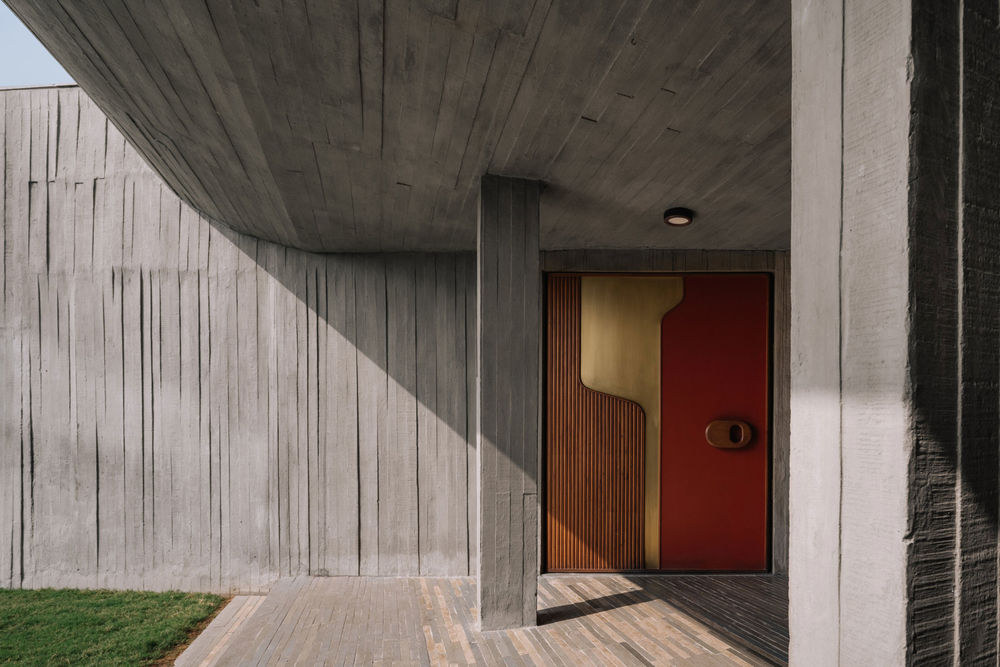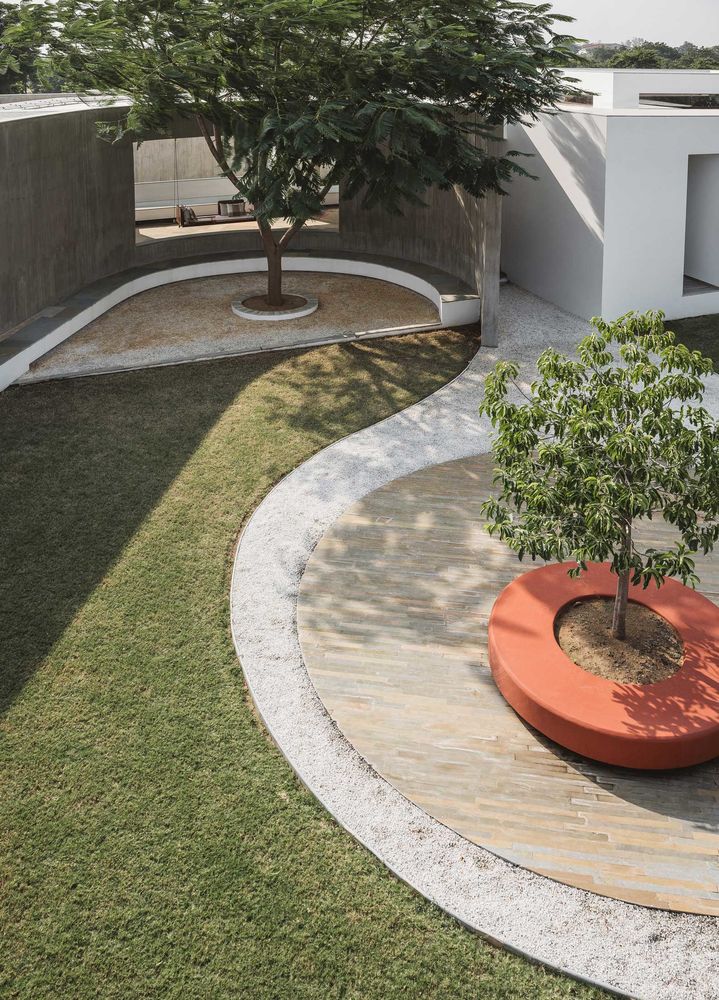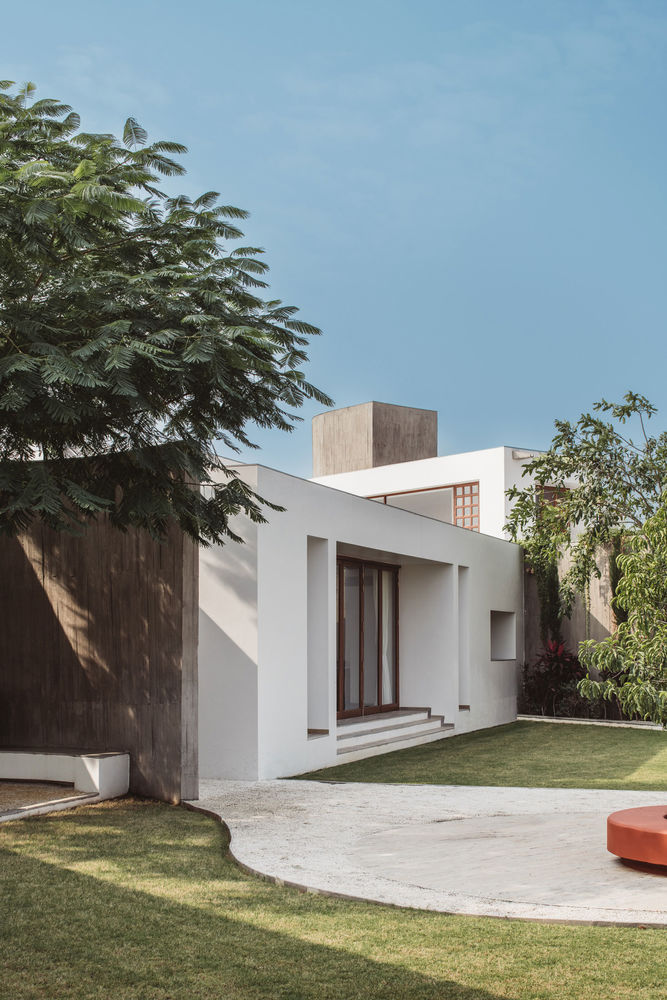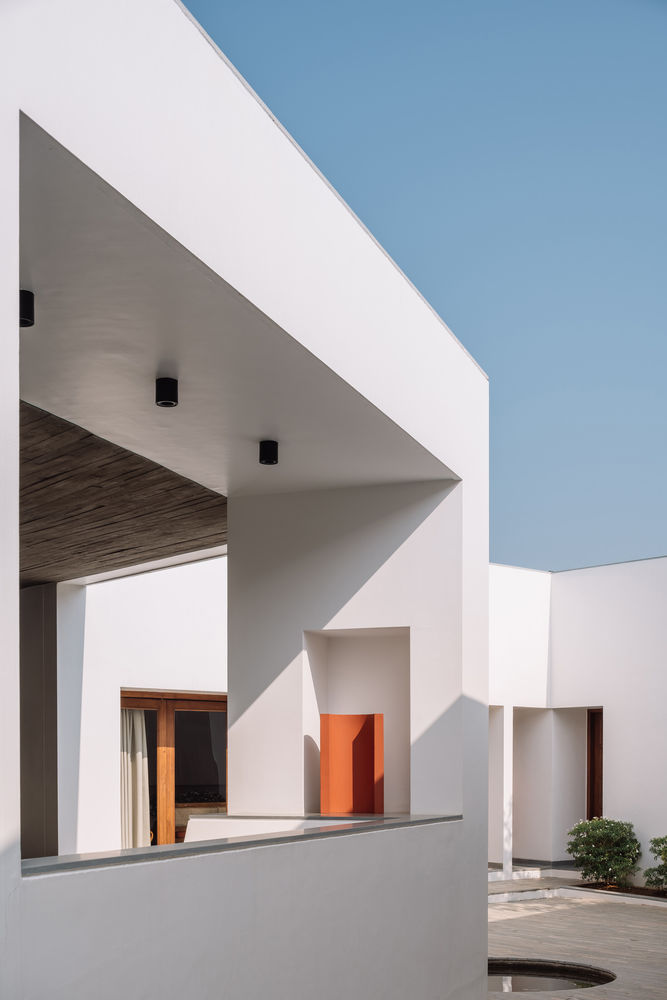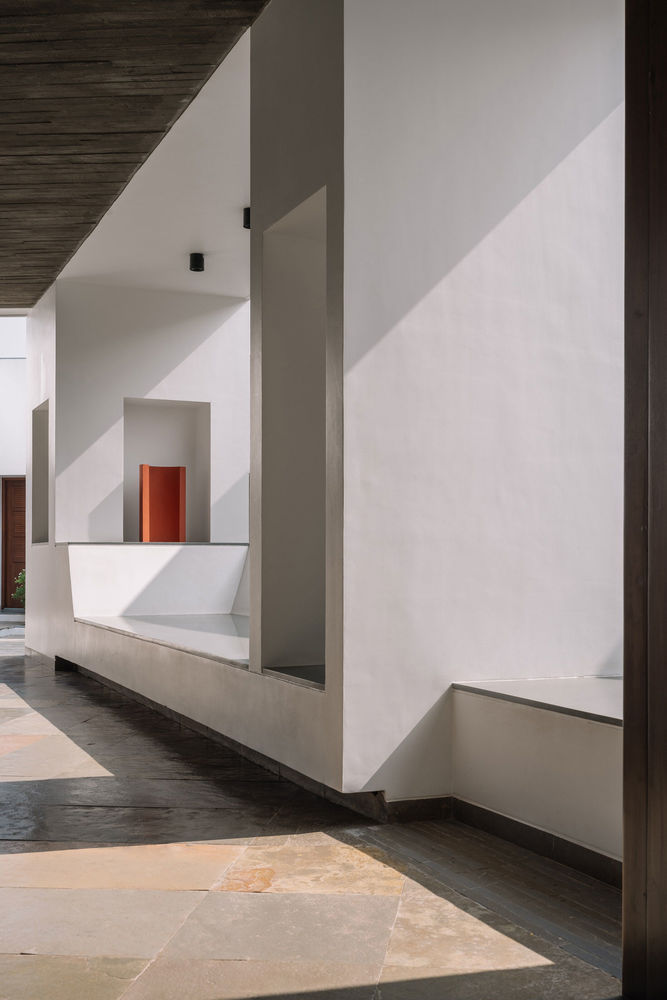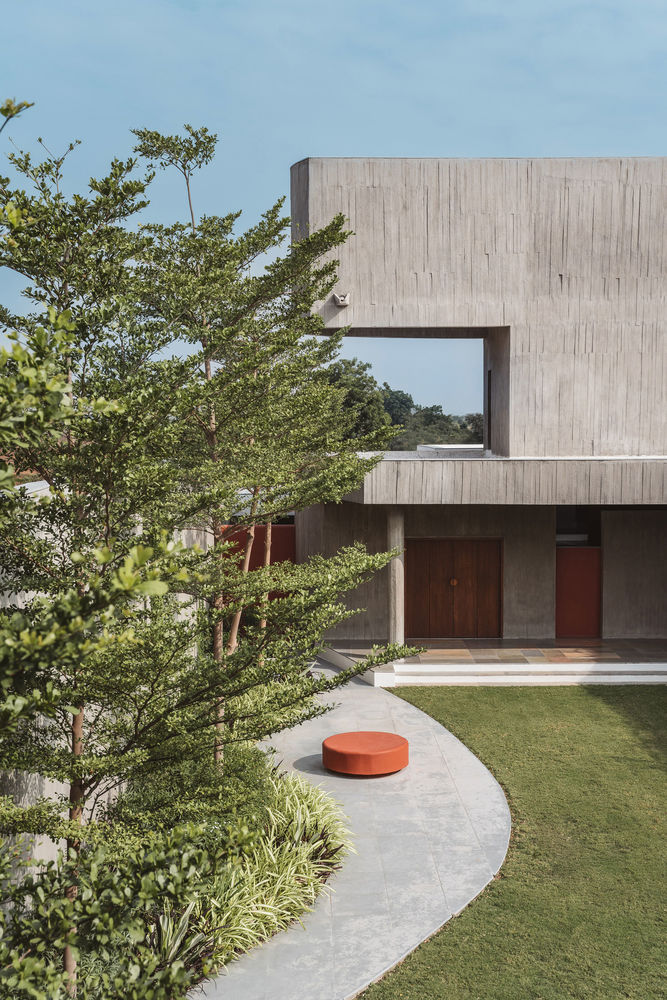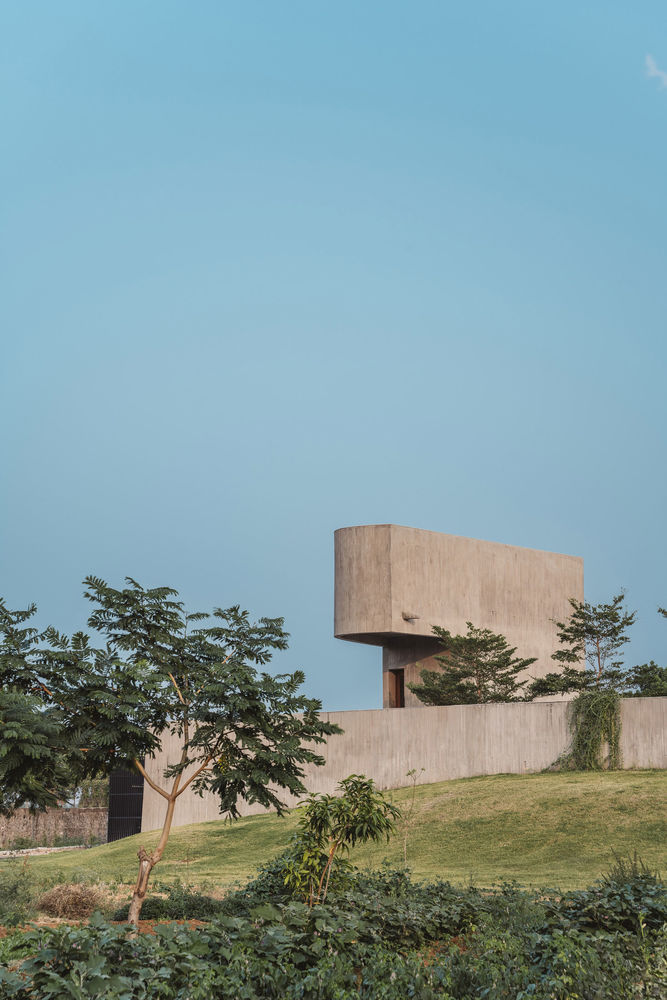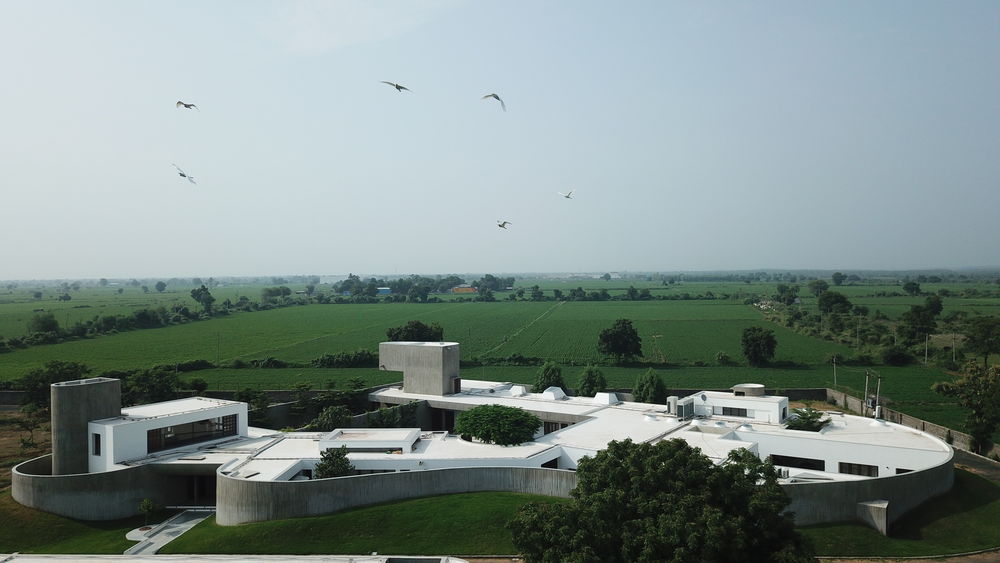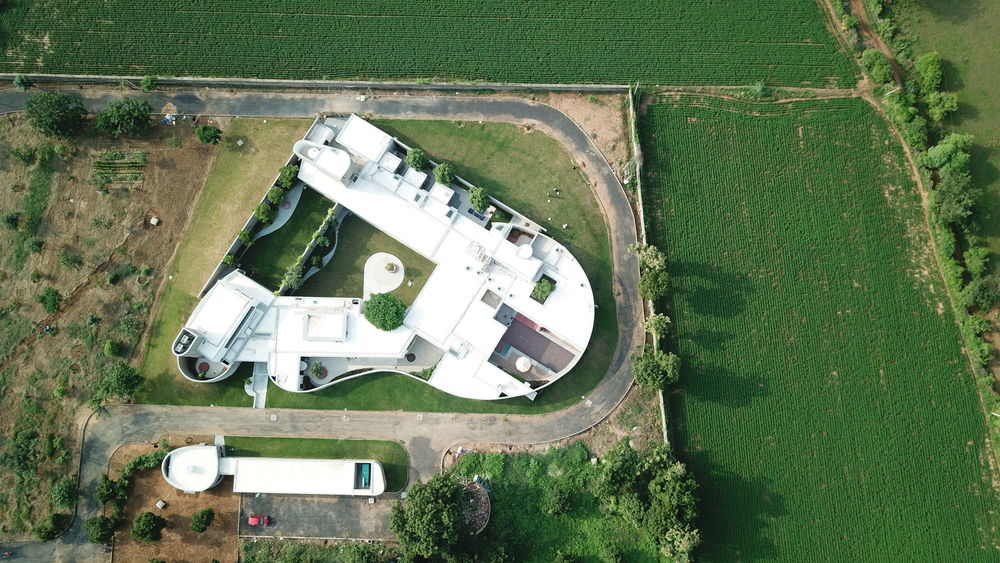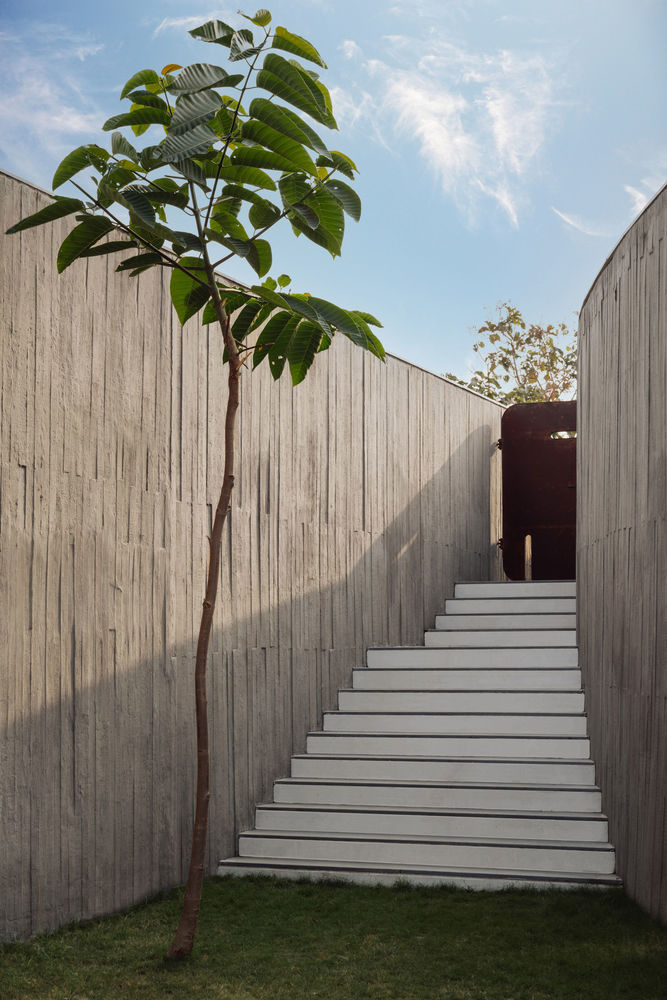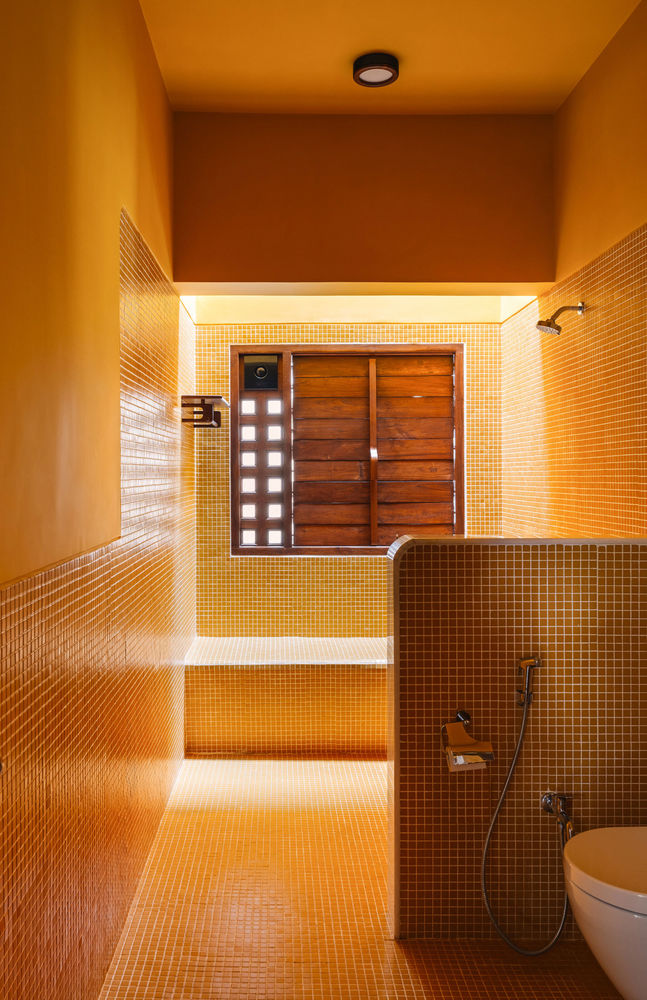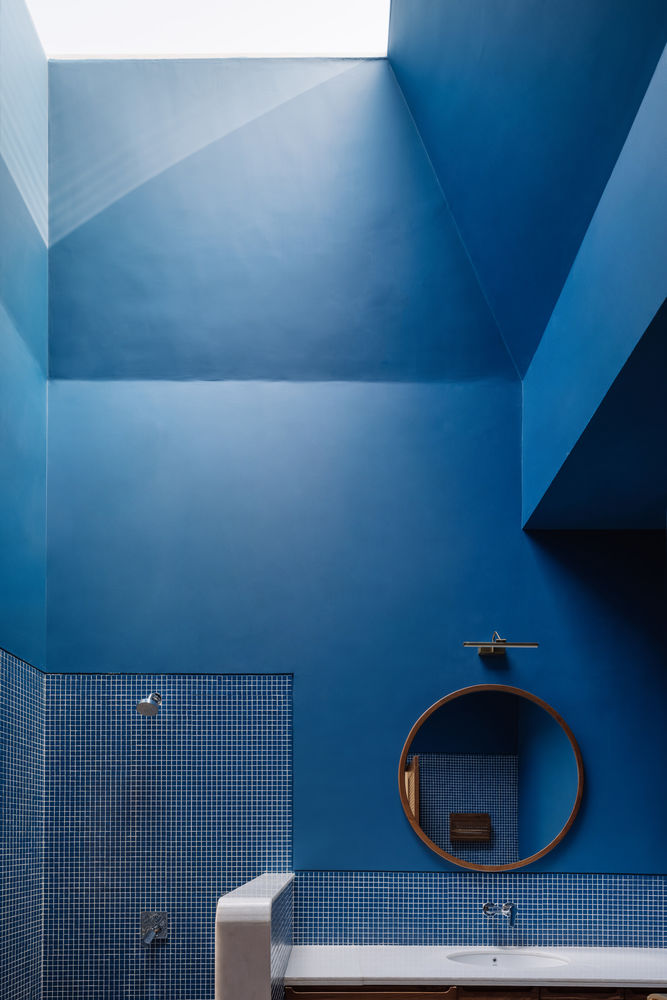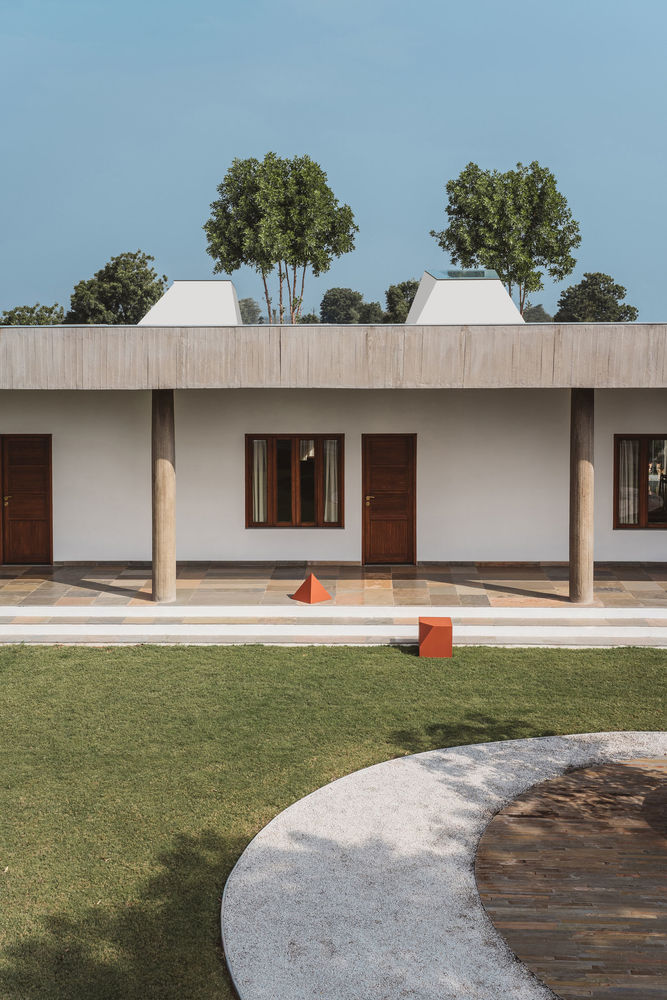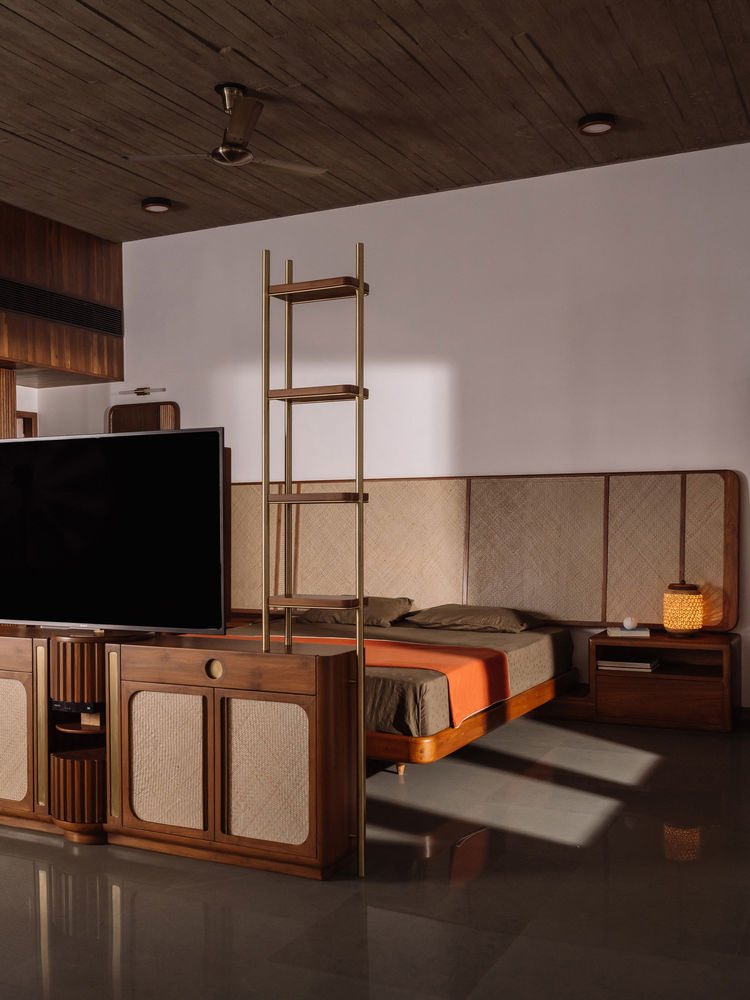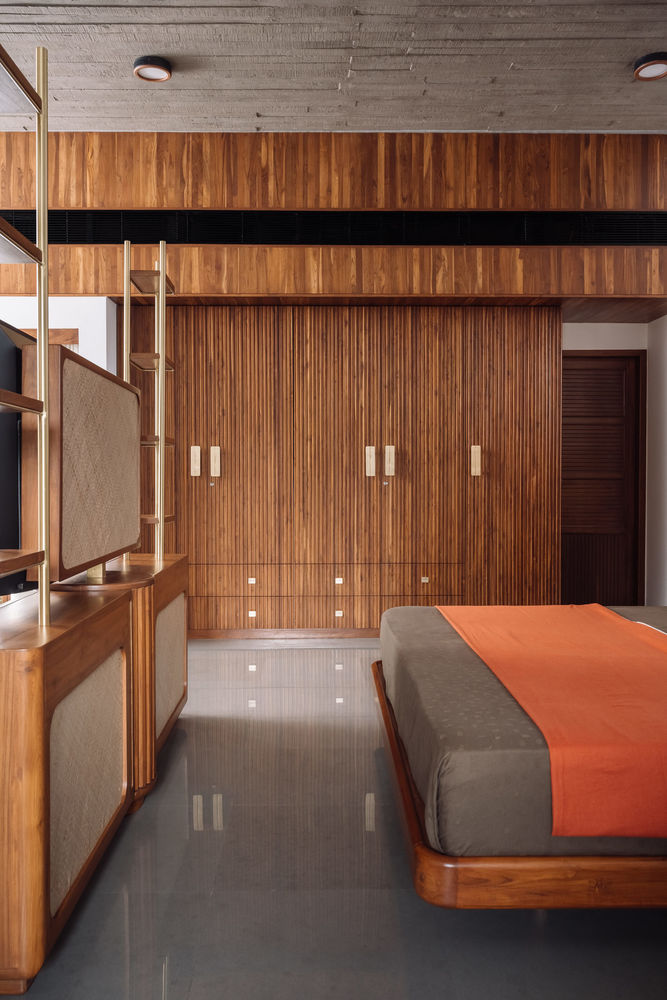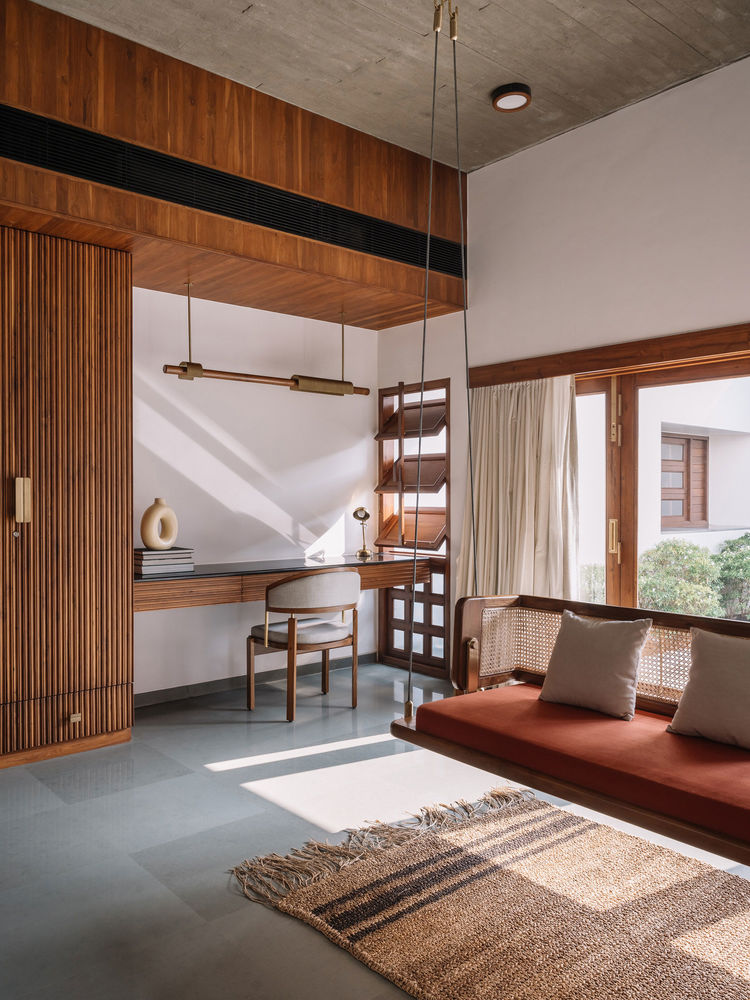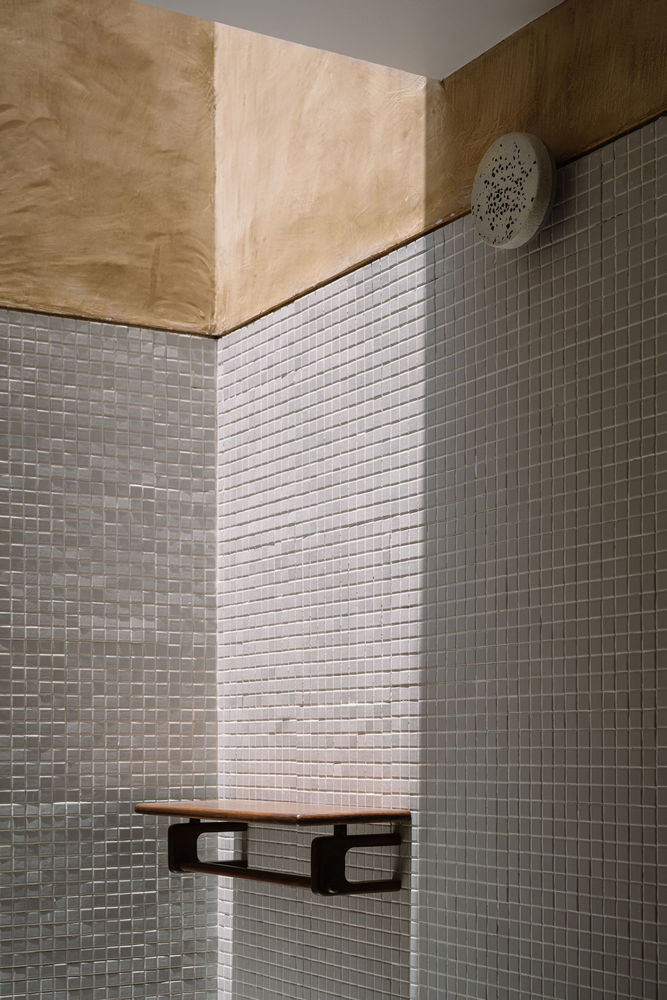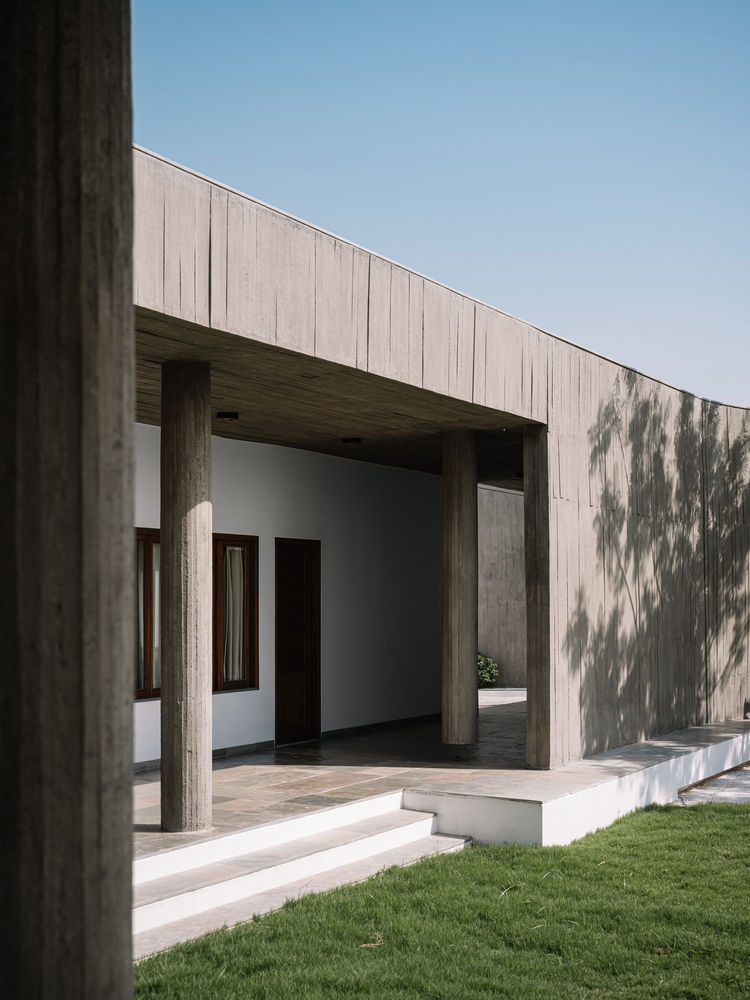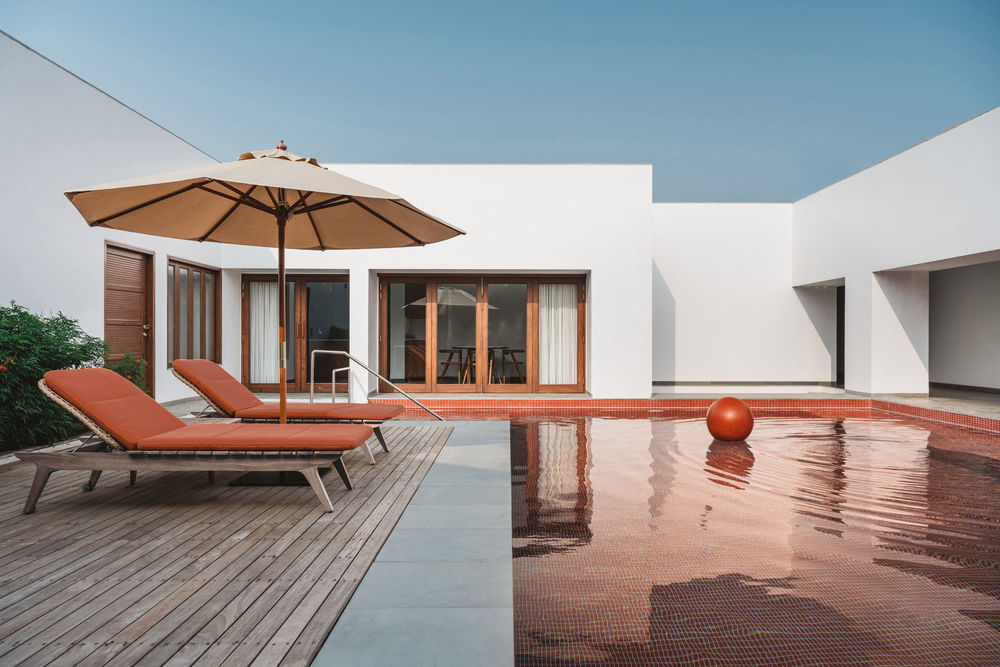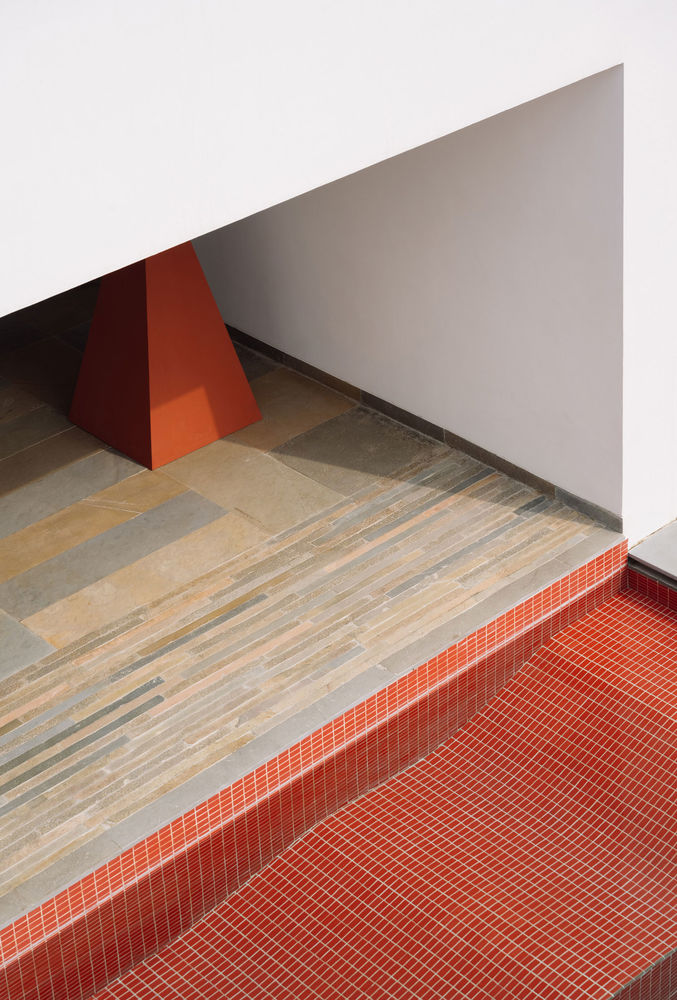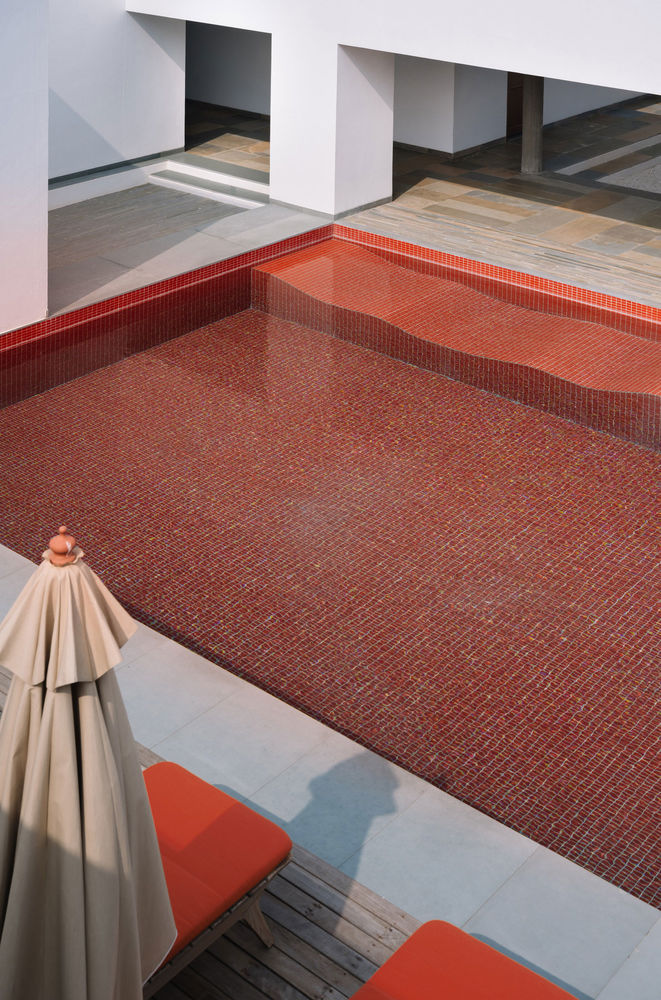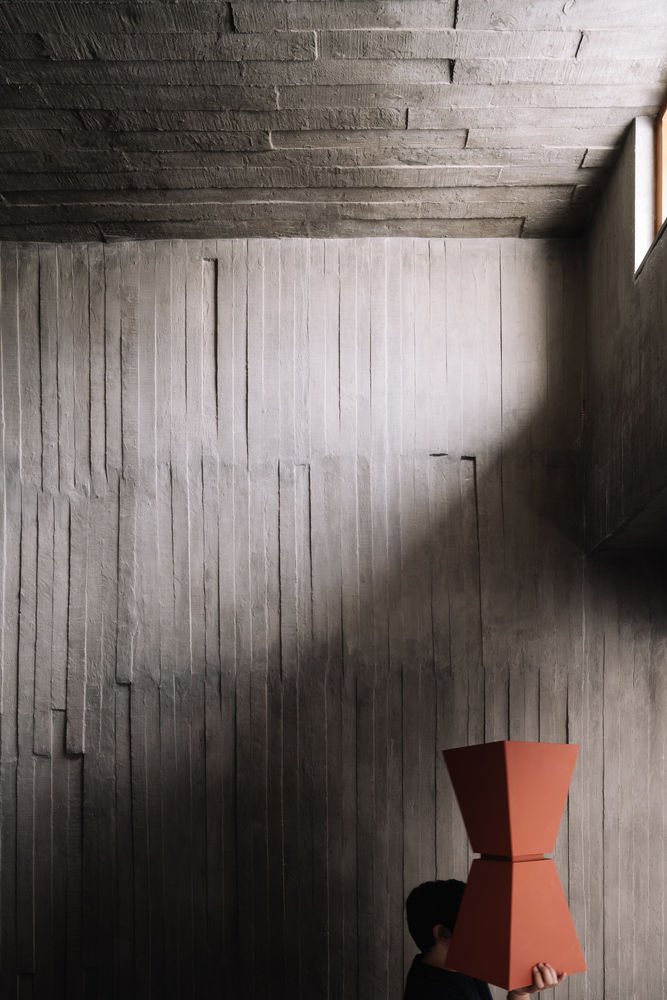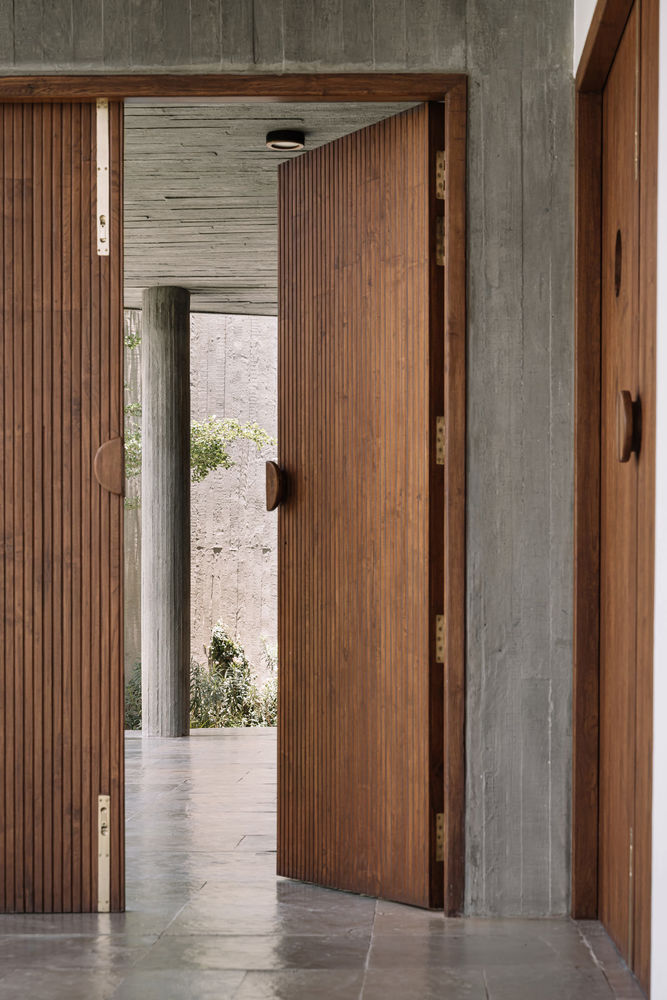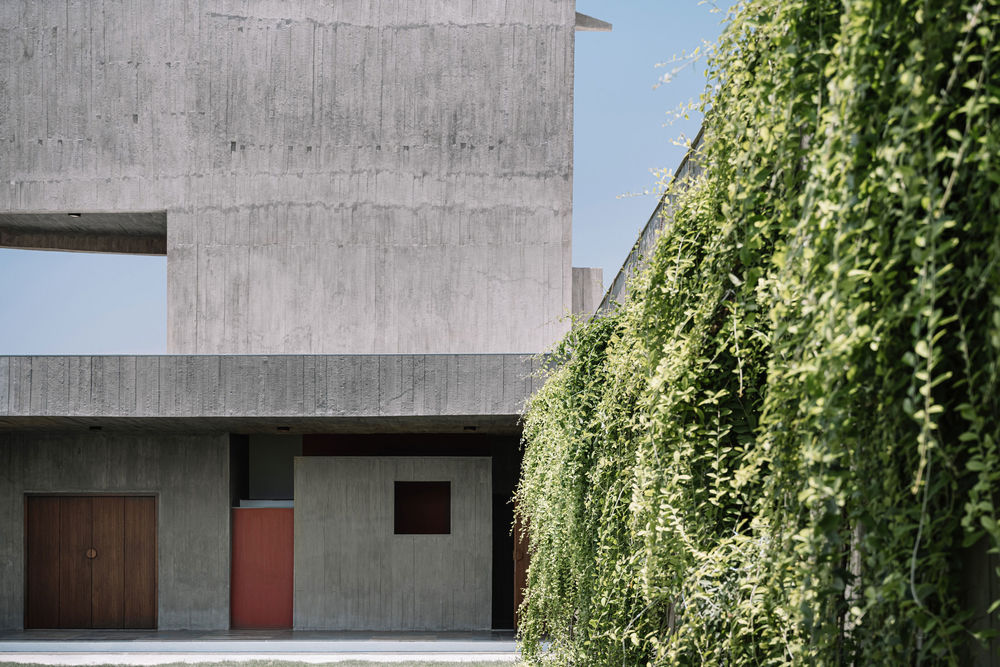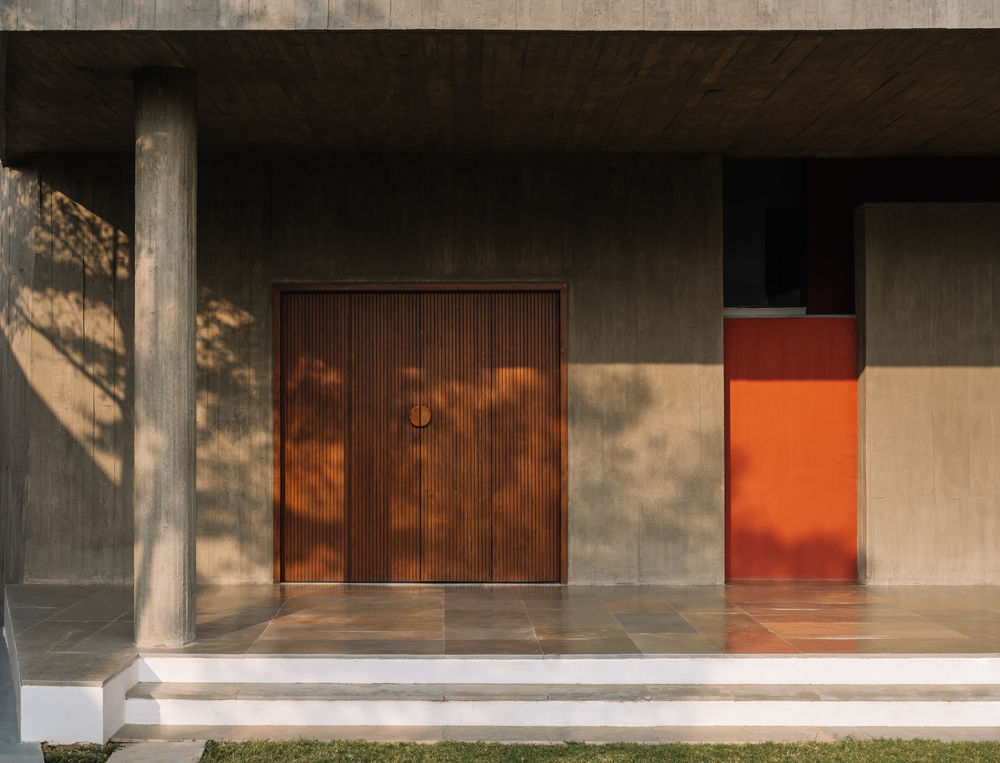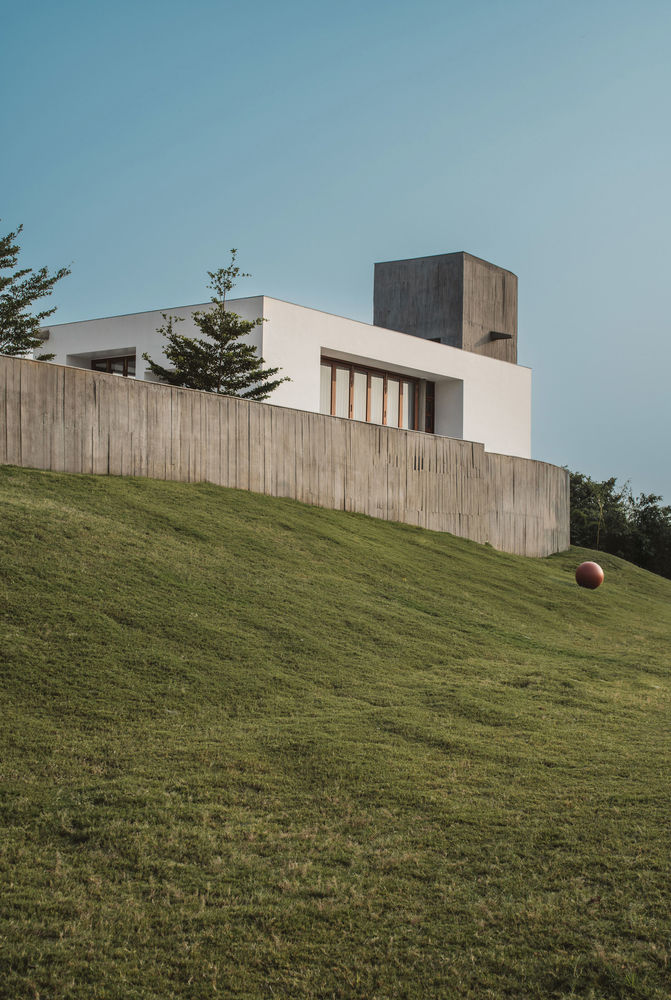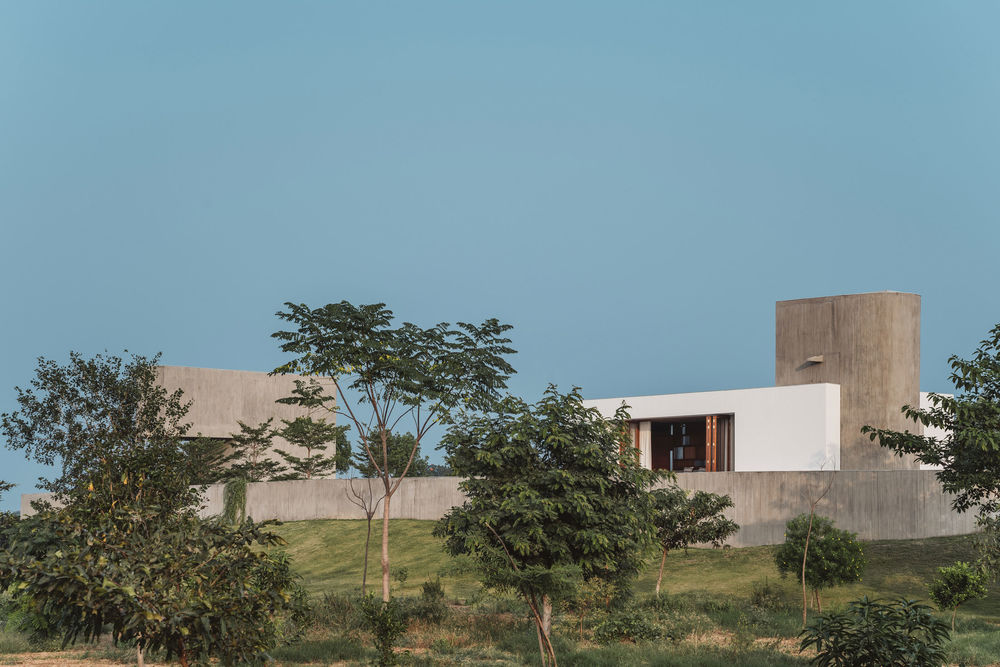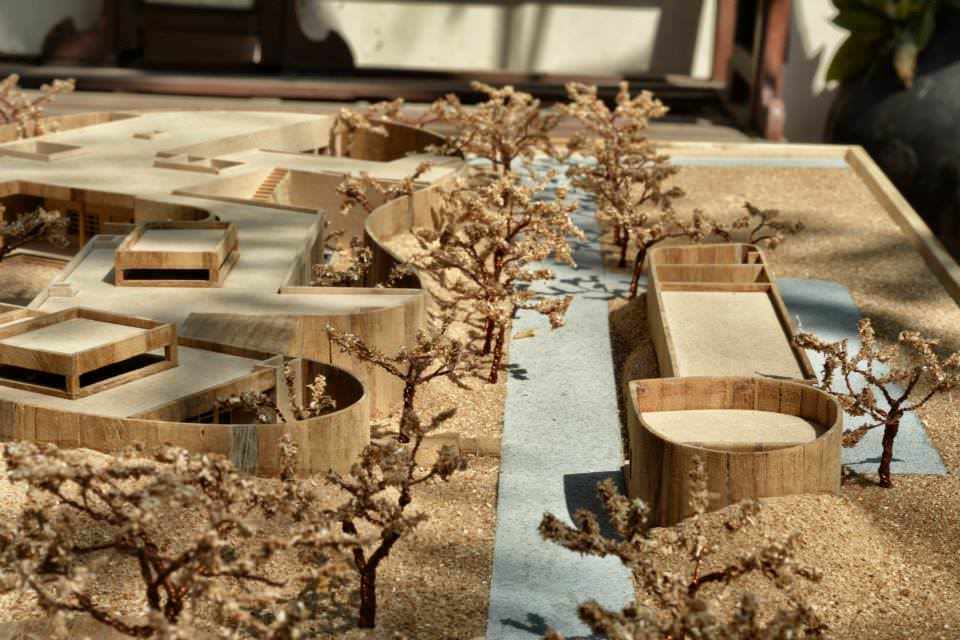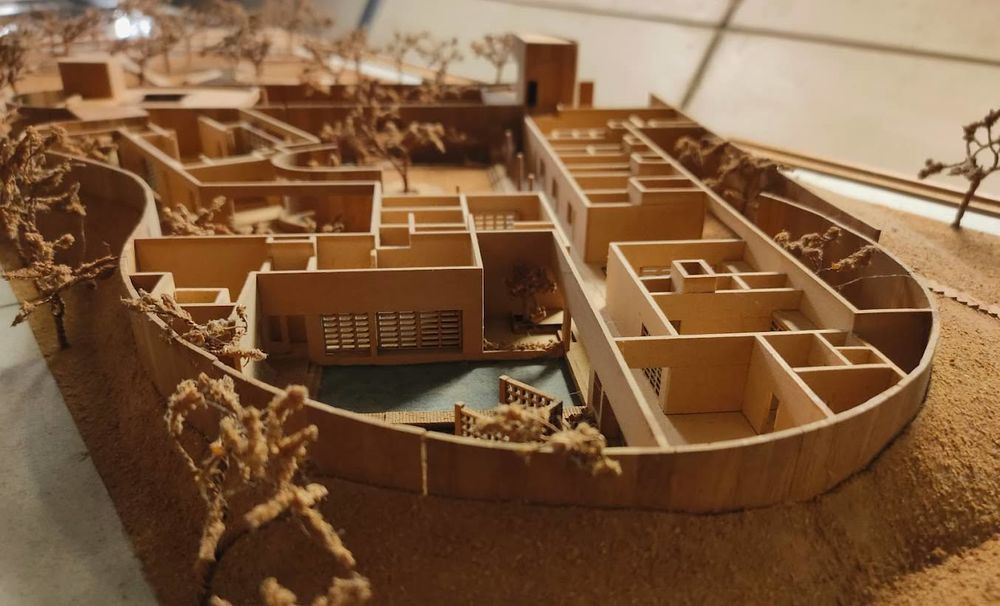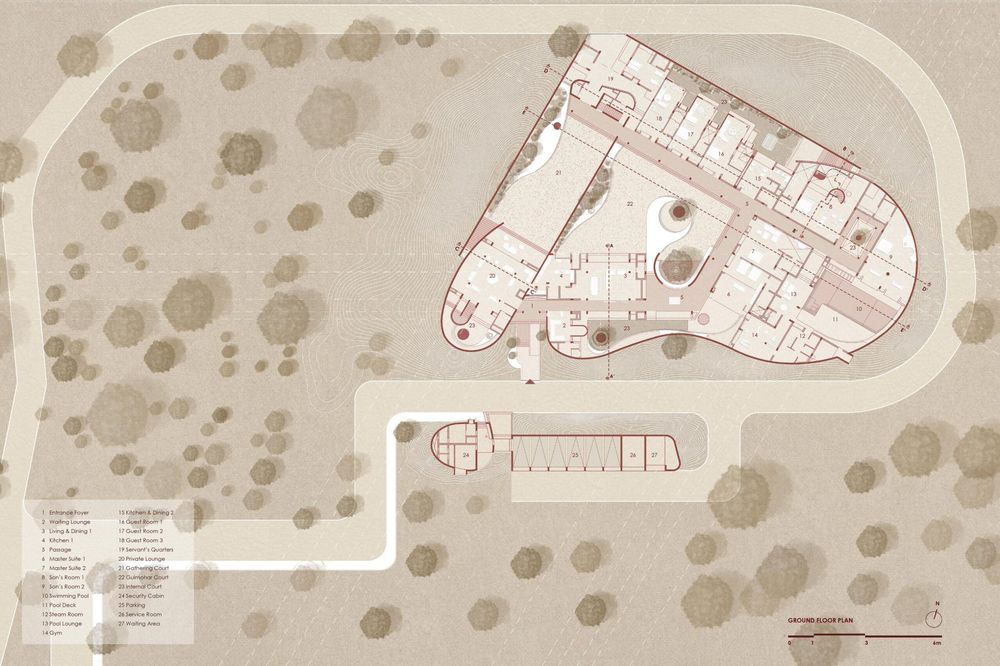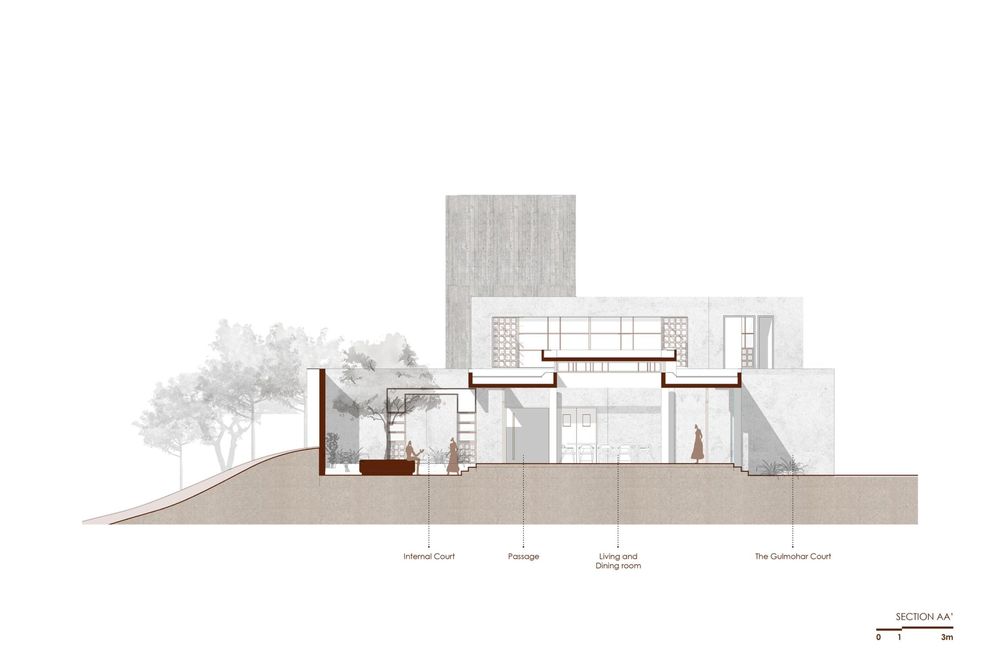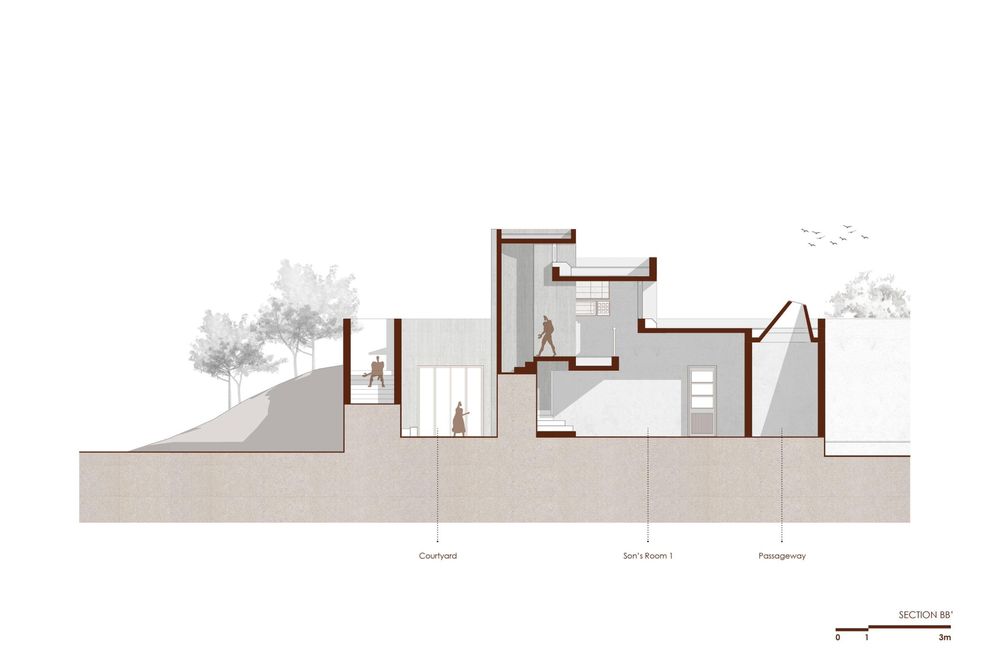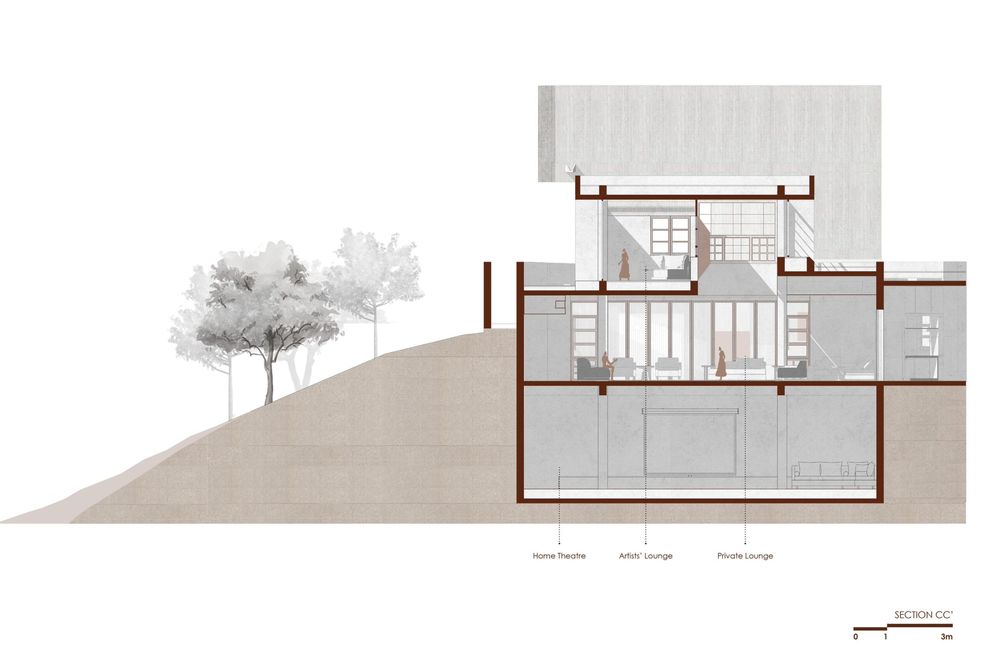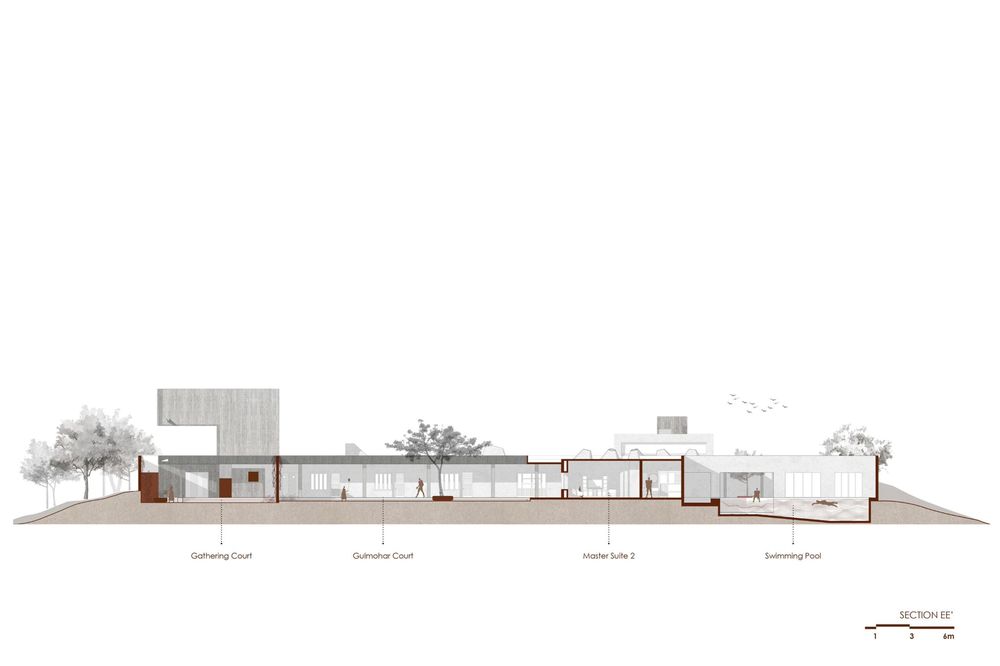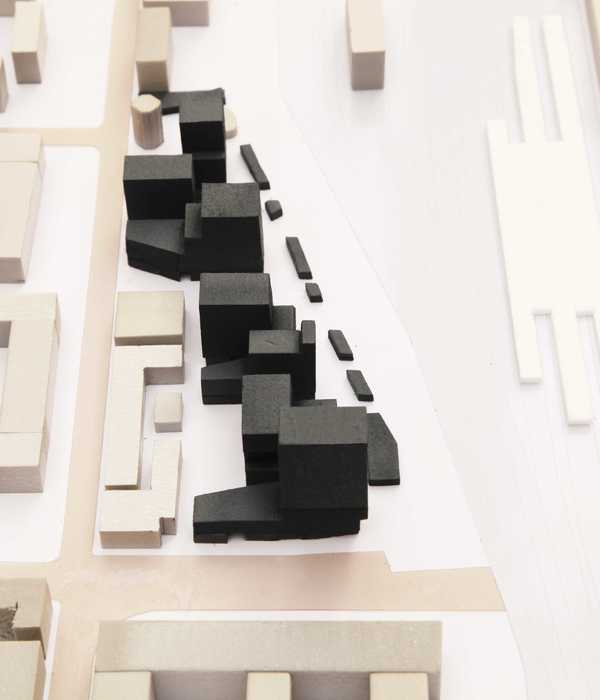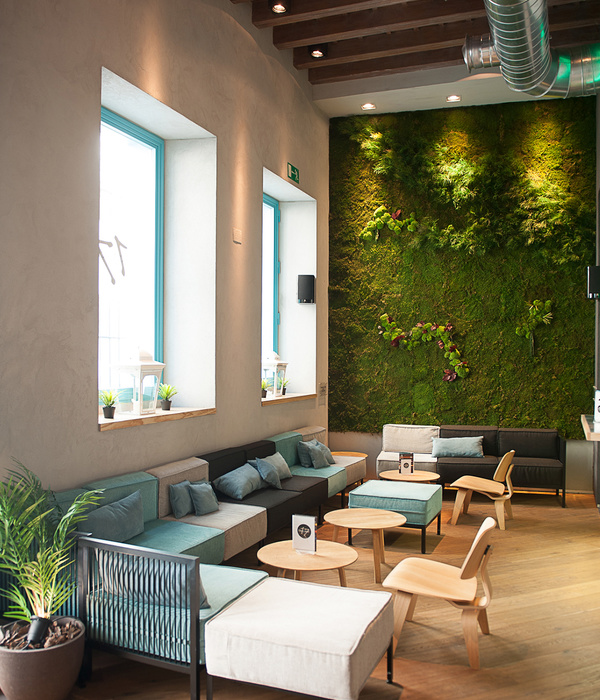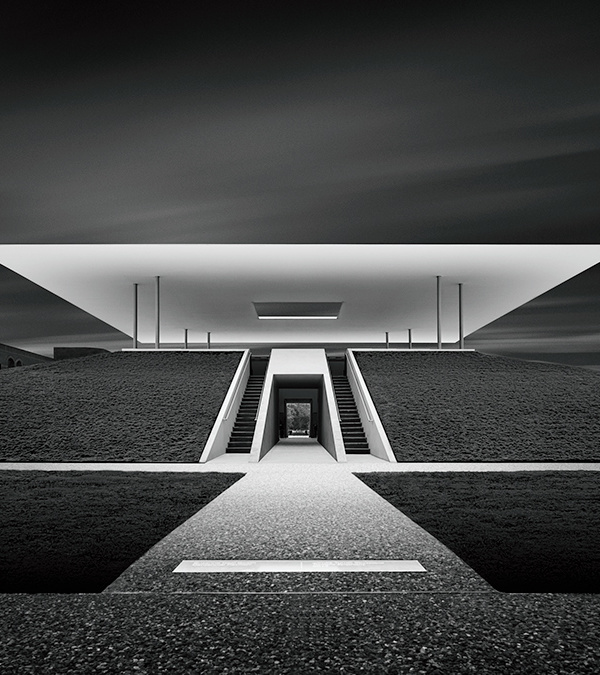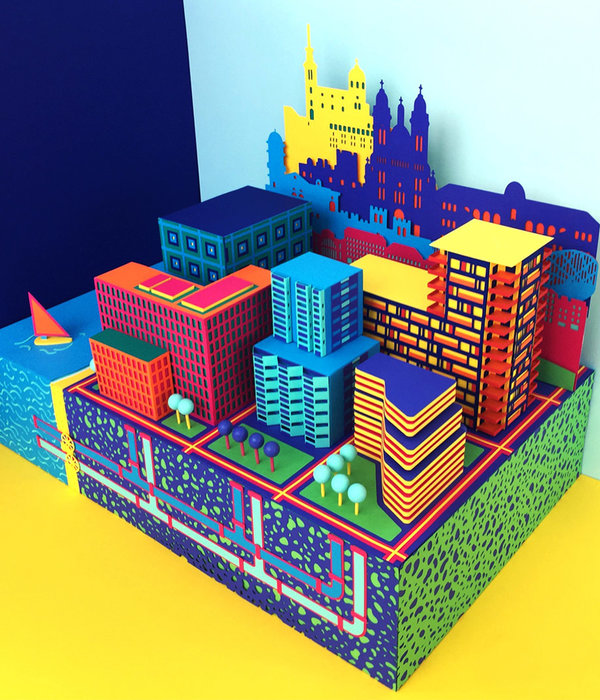A House Without Elevations: Enclosure by Design Ni Dukaan.
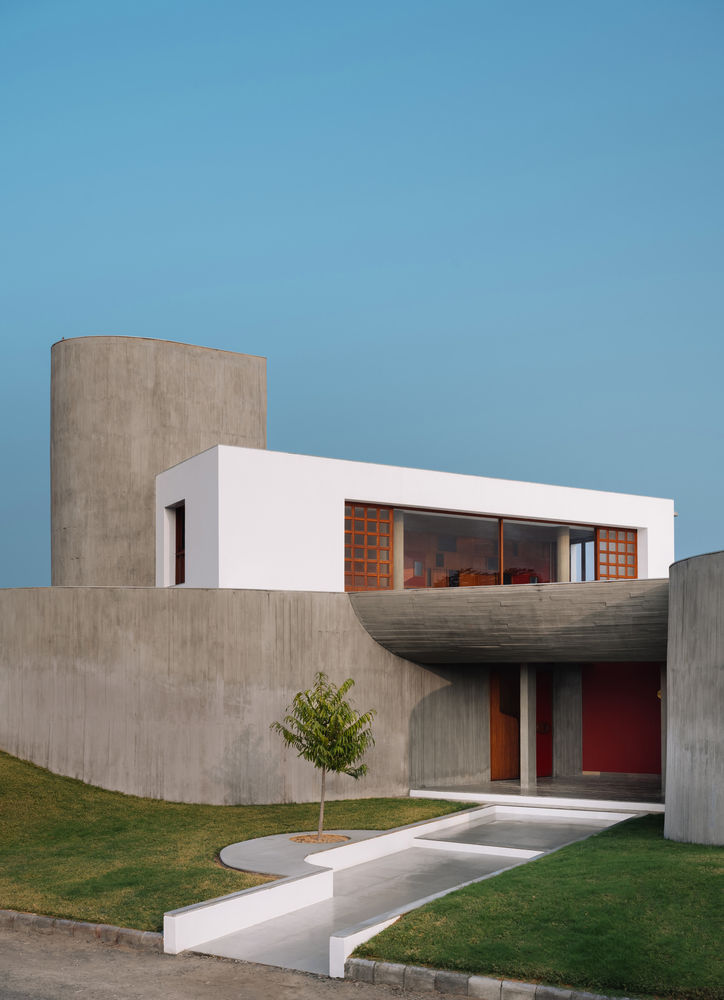
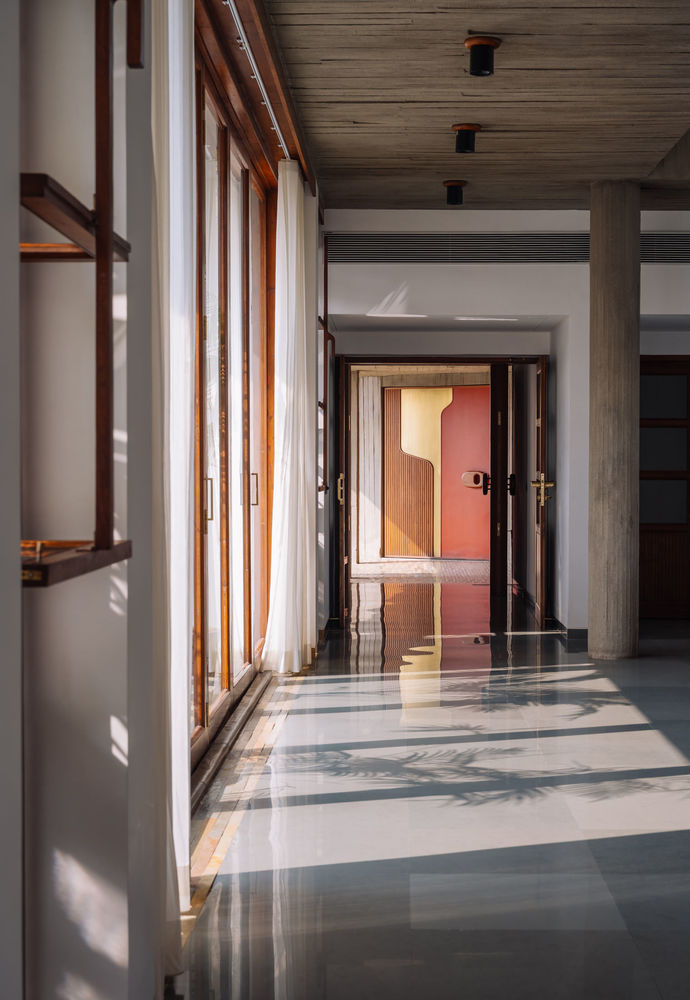
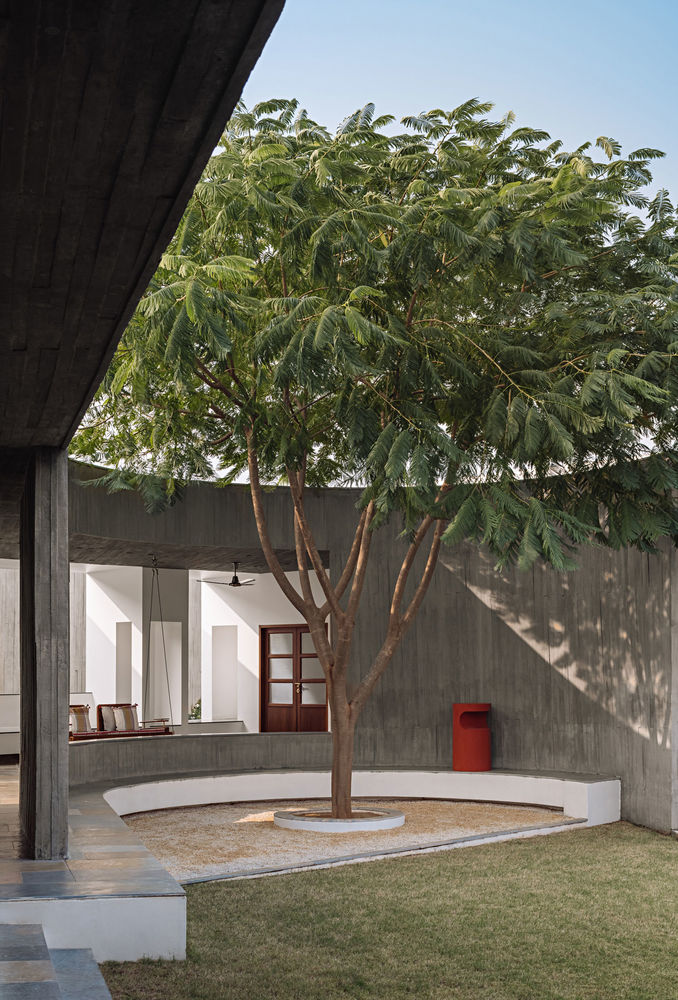

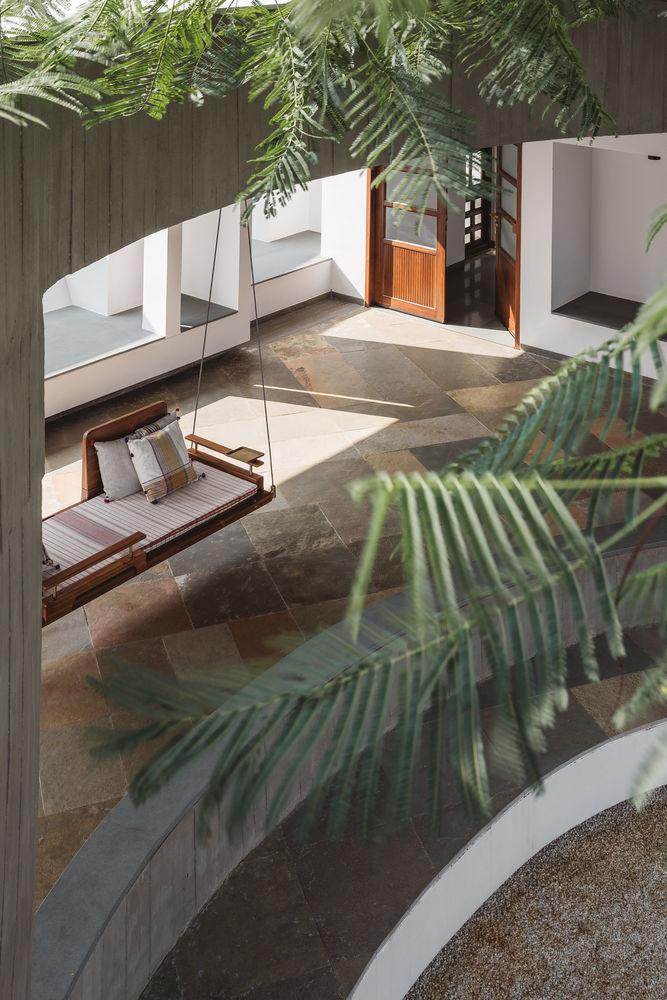
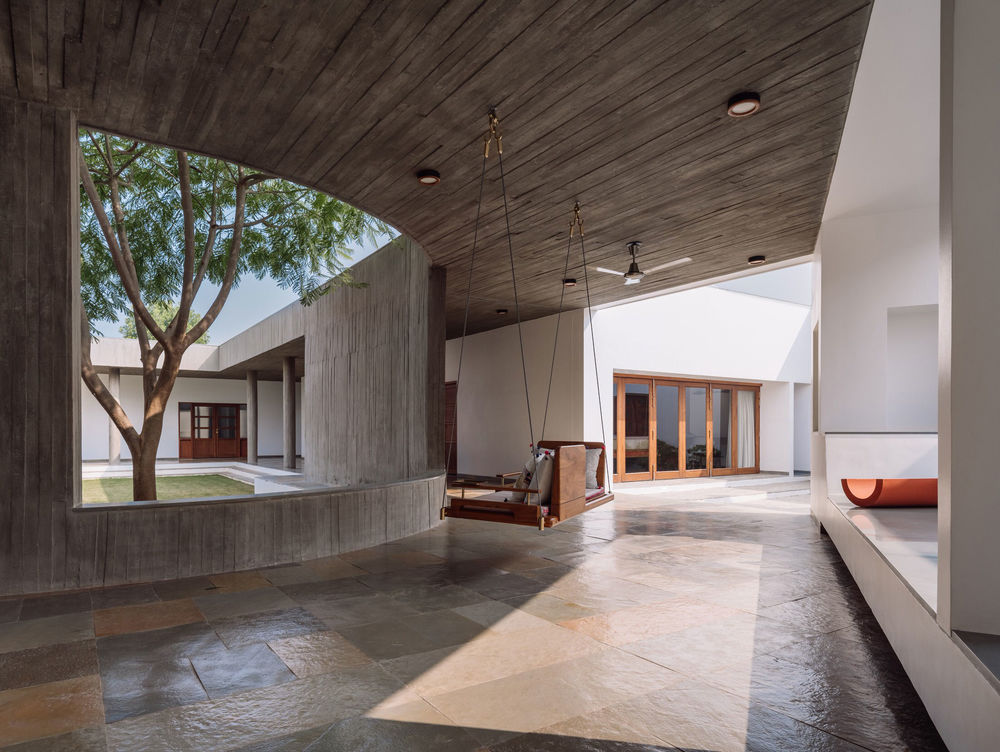
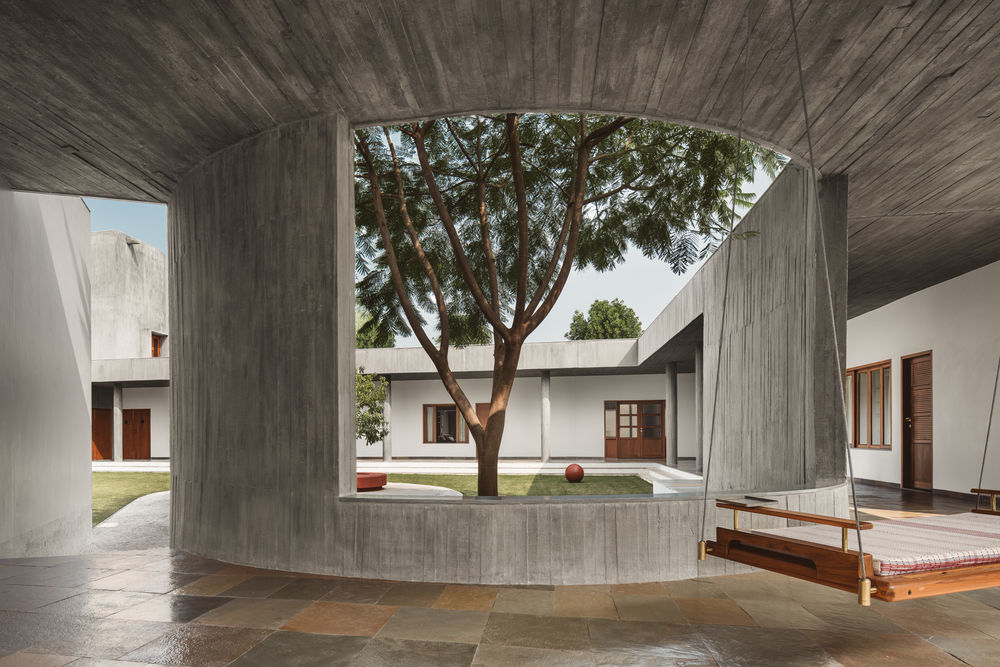
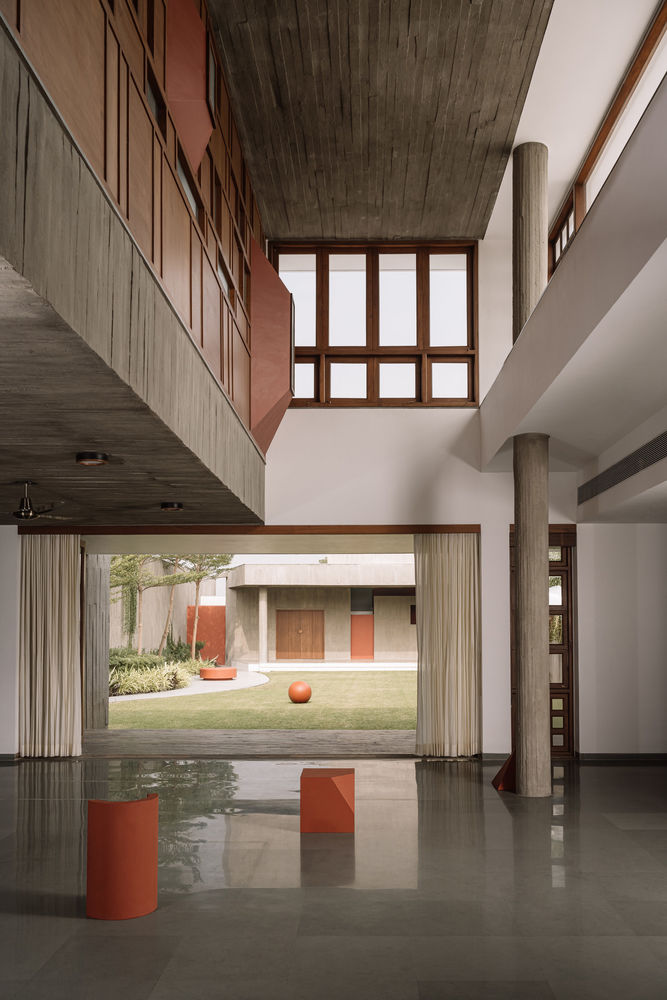
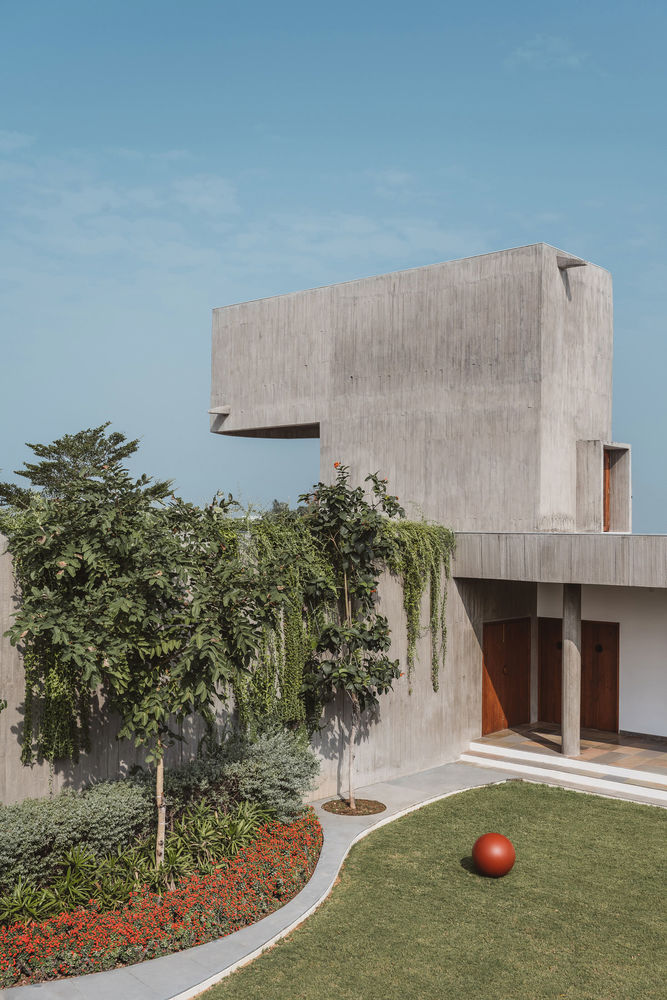
It was only 2 months ago that I was standing within Le Corbusier’s Palace of Assembly, staring up its iconic sculptural hyperbolic shell. Looking at Design Ni Dukaan’s recently completed home called Enclosure, located within Himatnagar, Ahmedabad, there’s a sense of similarity across some of its spaces and Le Corbusiers’ more institutional Capitol Complex. So, how is this an intimate family home, and what inspired Design Ni Dukaan to draw on such monumental proportions?
In the absence of prominent site features in the remote rural location, Design Ni Dukaan architects turned to the brief to inform them what the shape of this house should be. Architects Veeram Shah and Snehal Gada explain that through “the client’s complete disinterest in how the house would look from the outside, [we] began to question the very basis of the built form”.
The buildings within Le Corbusier’s capitol complex, while heavily informed by brief and function, host an ephemeral spatial quality that is almost all-consuming. A complete play on scale, the buildings don’t only consider the human scale, but use it to set up volumes that have a presence. For Design Ni Dukaan, the project was very much about creating a “shift in perception, [where the] experience of space takes precedence over form”.
Situated on a mound, the citadel-like compound is made up of a series of buildings, all wrapped within an organic, unravelling second skin. Creating growing and shrinking pockets of space between various rooms, this fluid wall weaves in moments of privacy, openness and connection across the home. It also envelopes a series of expansive gardens and internal courtyards, as well as a pool. Where the two walls converge, a sweeping entrance canopy reveals the home to the surrounding landscape. Sequentially unfolding spaces beyond begin to consider the human scale, shifting in size and monumentality.
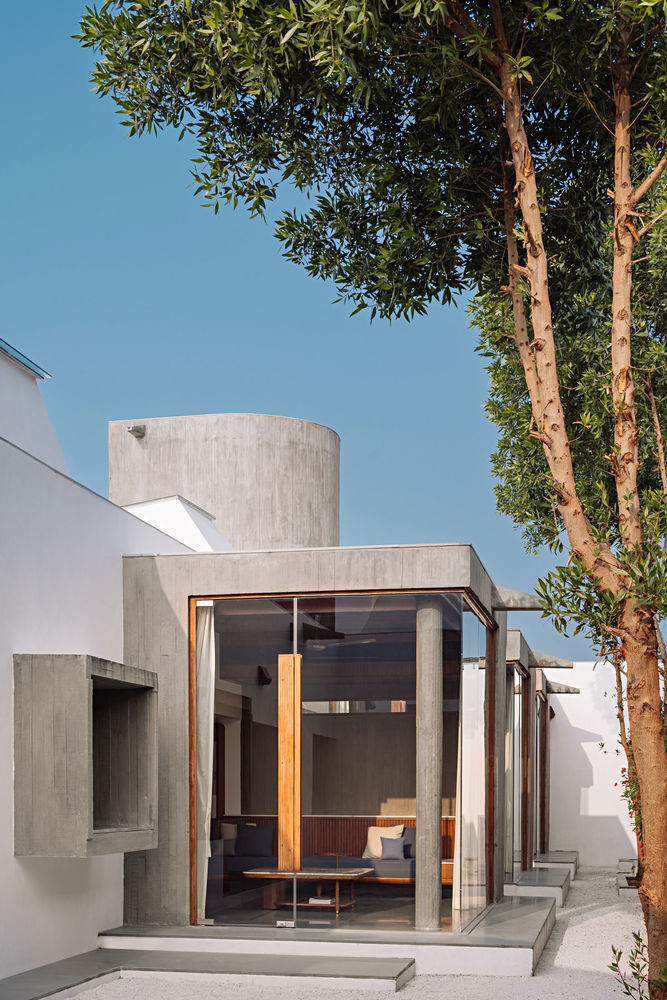
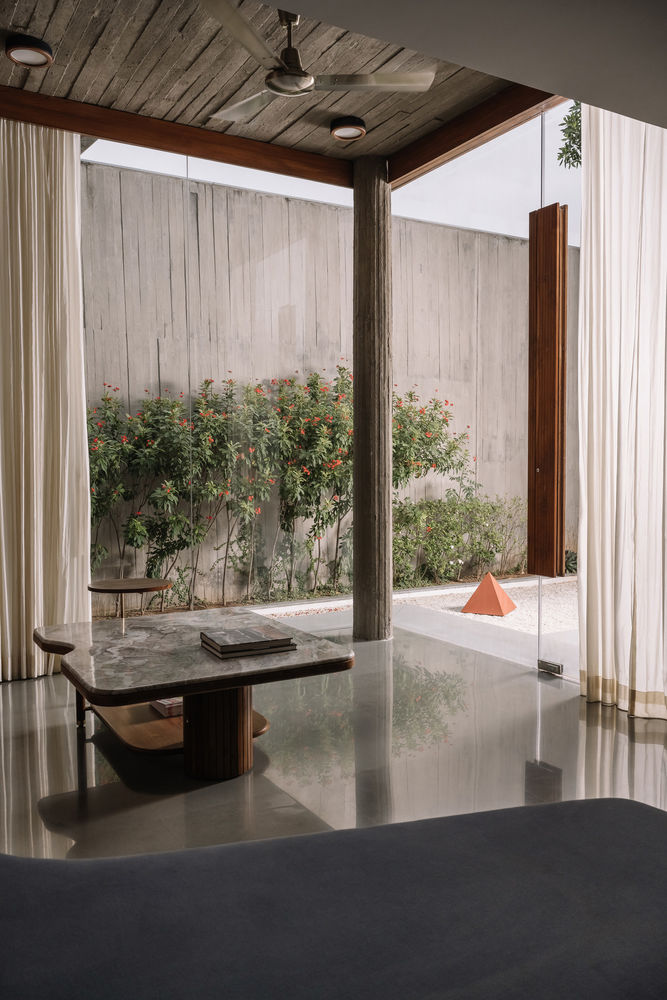
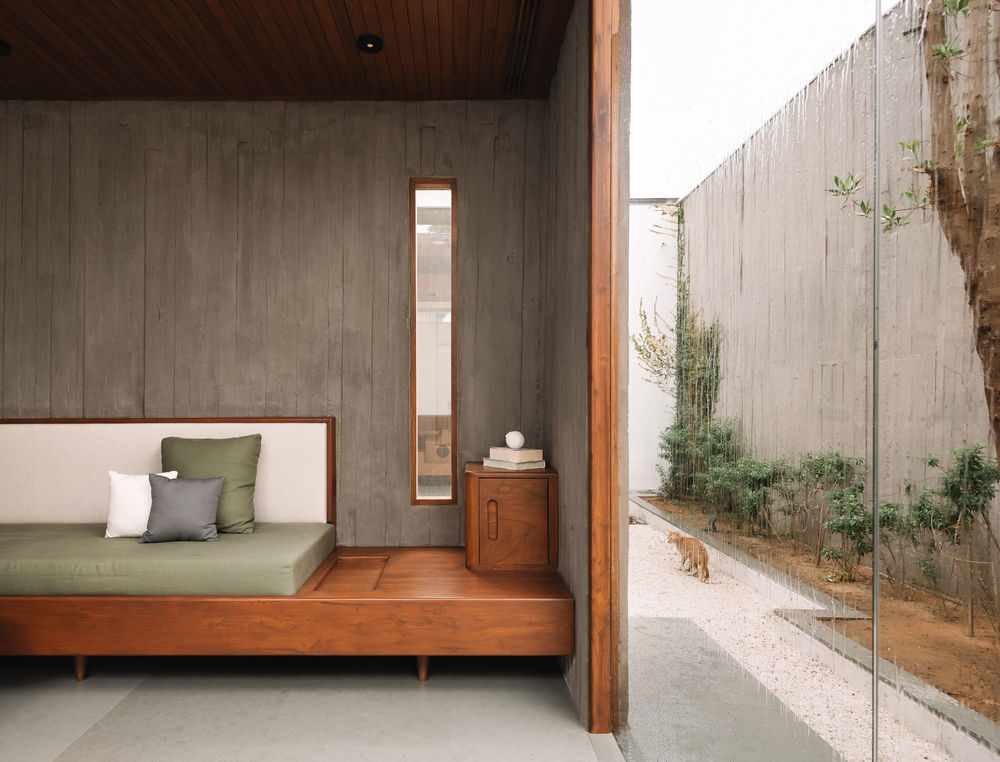
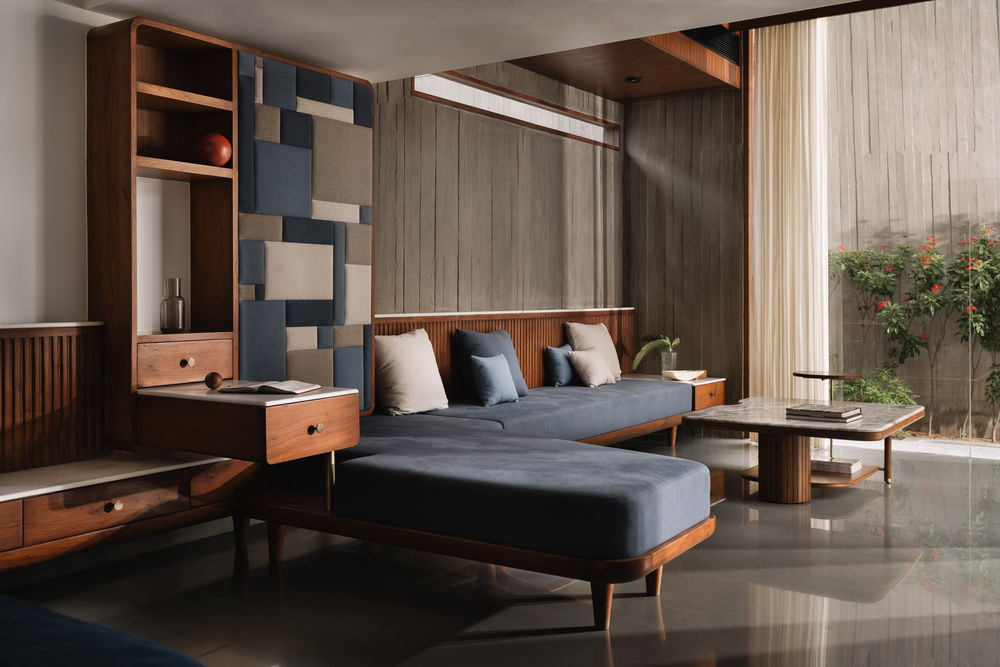
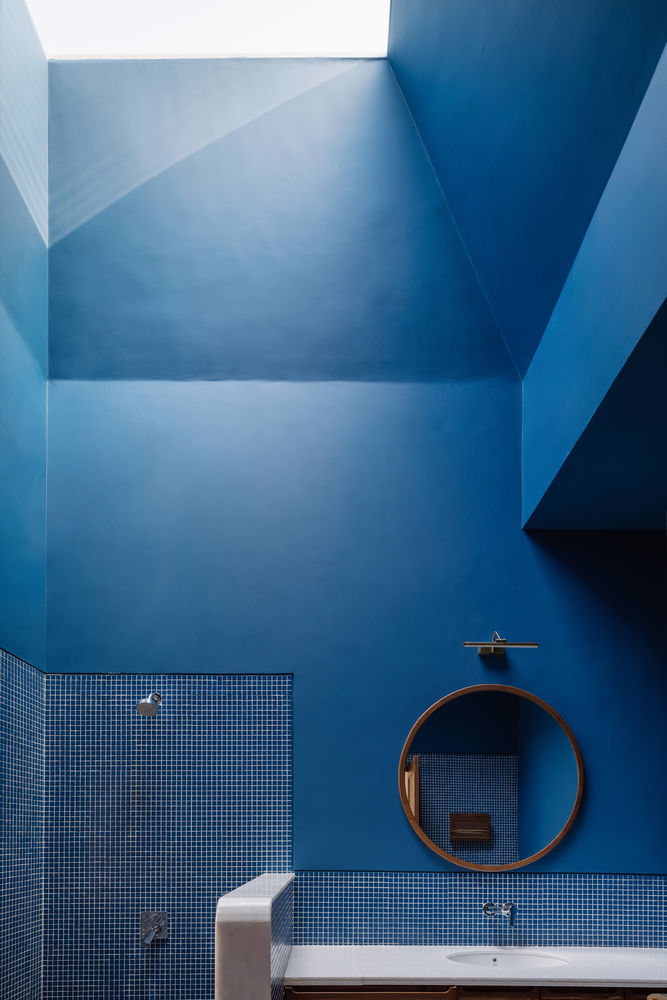
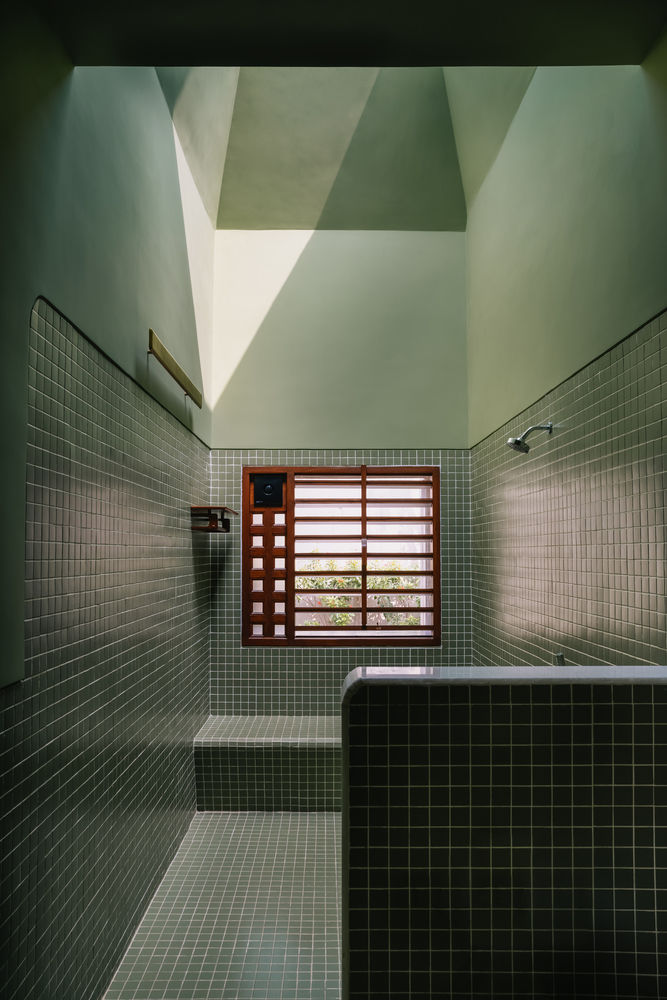
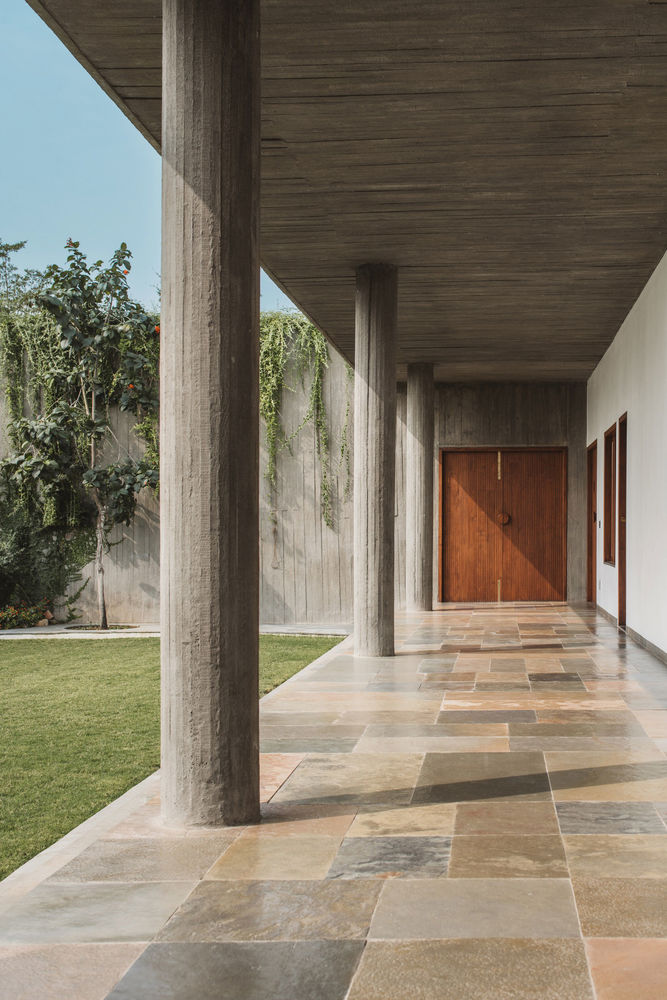
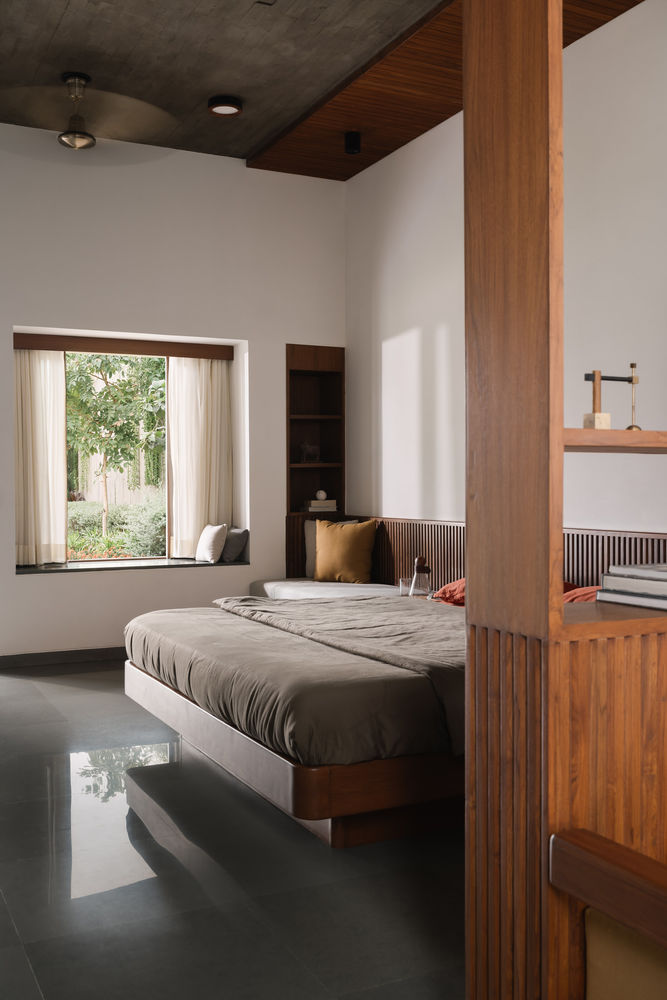
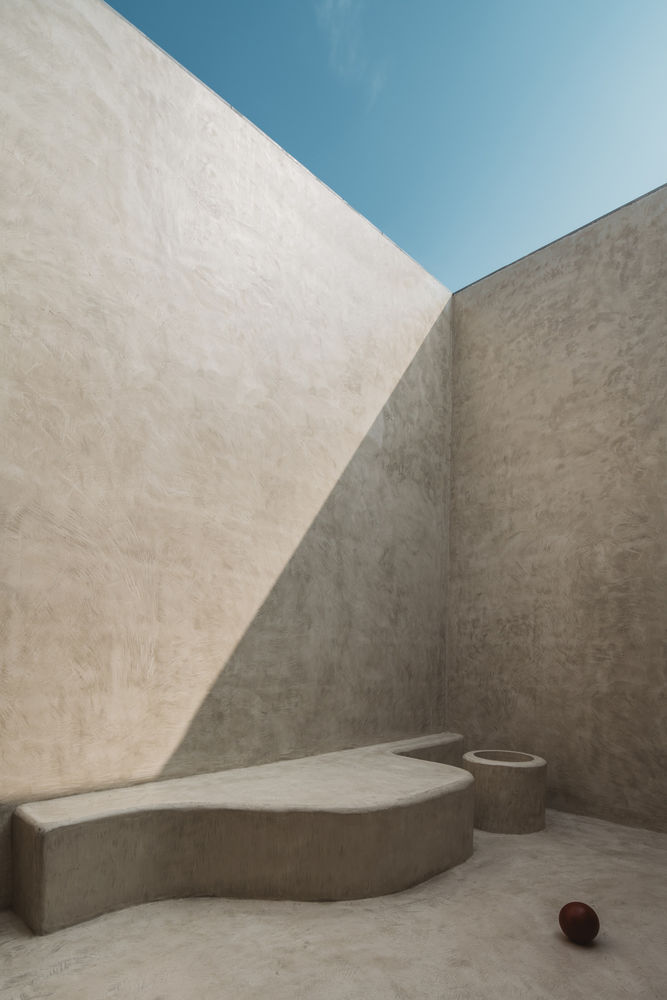
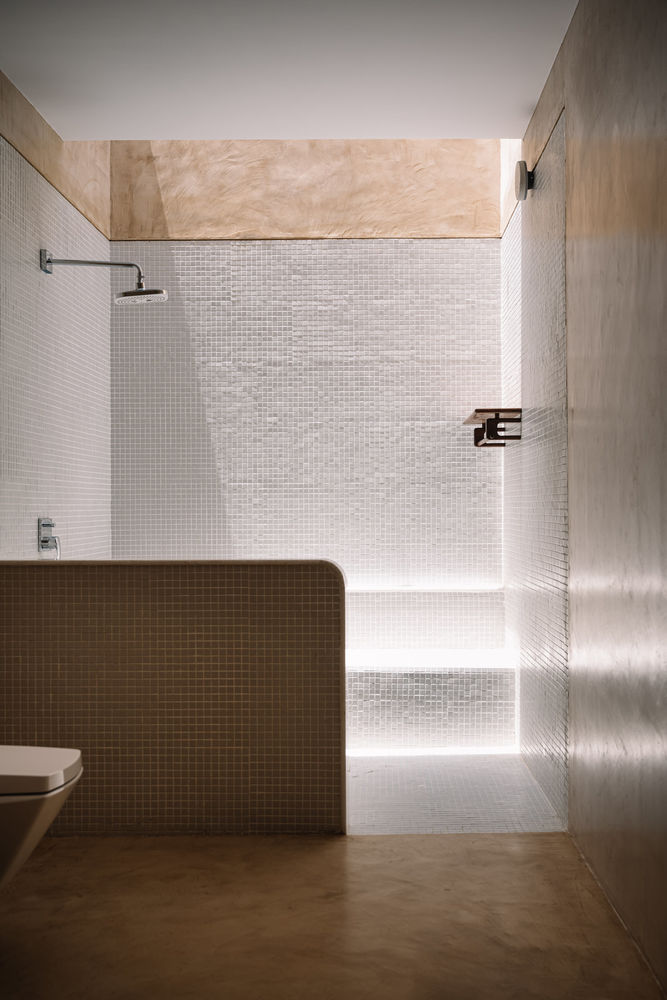
Aerial shot showcasing the entire—mind boggling—scope of the property.
The belly of the home houses the two master suites, with direct access to the pool, steam room and gym. The hallway to the two son’s bedrooms shifts in scale, relying heavily on a series of truncated concrete skylights to reach for the skies while funnelling light into the long narrow spaces below. With access to their own courtyards, the sons’ rooms each include generous bathrooms and private lounge areas. While enclosed within the wrapping walls of the complex, the scale of these rooms are expansive and appear deeply connected to the adjacent gardens.
Extending the house further are a series of guest suites, each with an integrated lounge and private aspect out towards the guest gardens. Embracing colour blocks of green orange and blue, the guest suites are vibrant, in contrast to the more organic textural renders that line the walls of the bathrooms to the main suites and sons’ bedrooms.
Once a successful businessman, the client had returned to his rural farming roots and insisted on employing local labour. The all-familiar beton brut finish that prevails throughout the home was the unexpected result of an experiment. Design Ni Dukaan asked a village contractor to build a sample wall in concrete, resulting in what architects Veeram Shah and Snehal Gada describe as “an unpredictable but beautiful texture caused by the shifting and warping of unbolted wooden formwork”. This formed one of the many “anticipated imperfections” that Design Ni Dukaan decided to embrace as part of the construction of the home. Strips of leftover Kota stone were utilised to mimic the pattern of the concrete walls, extending the textural motif across the entire residence.
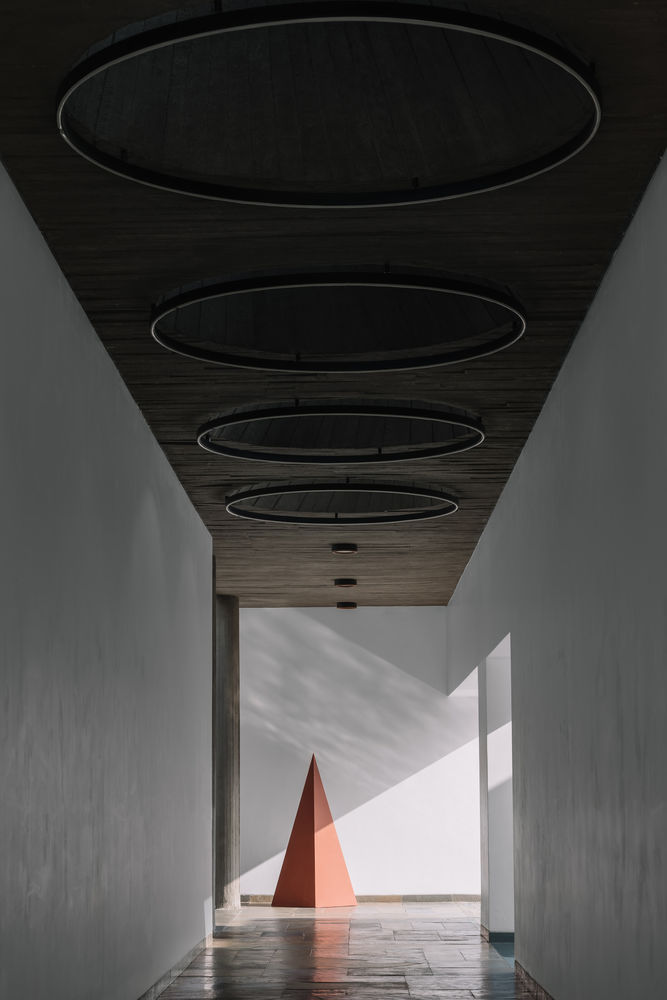
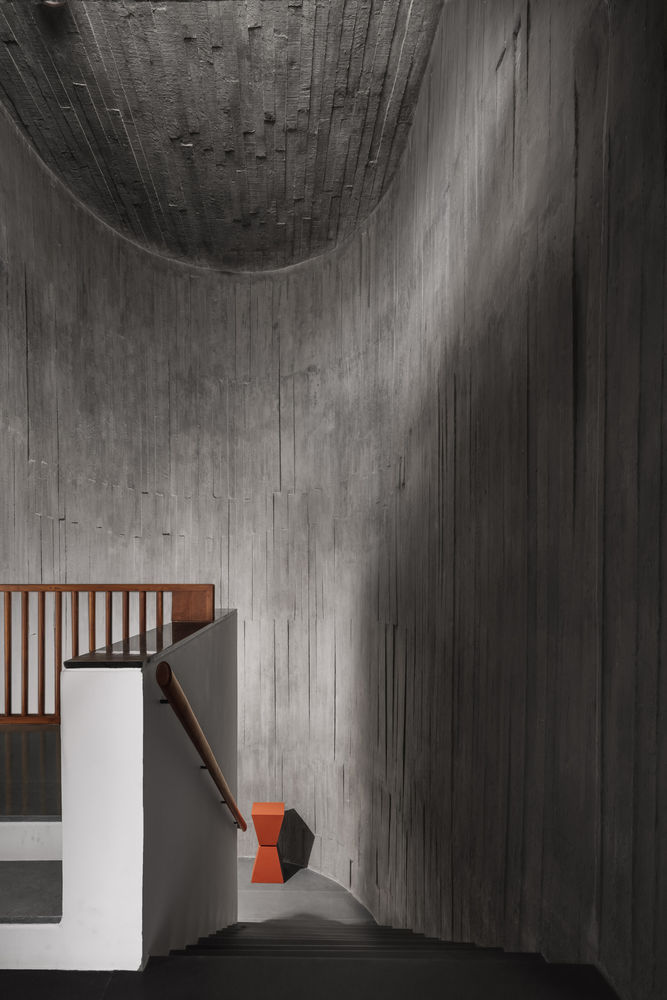
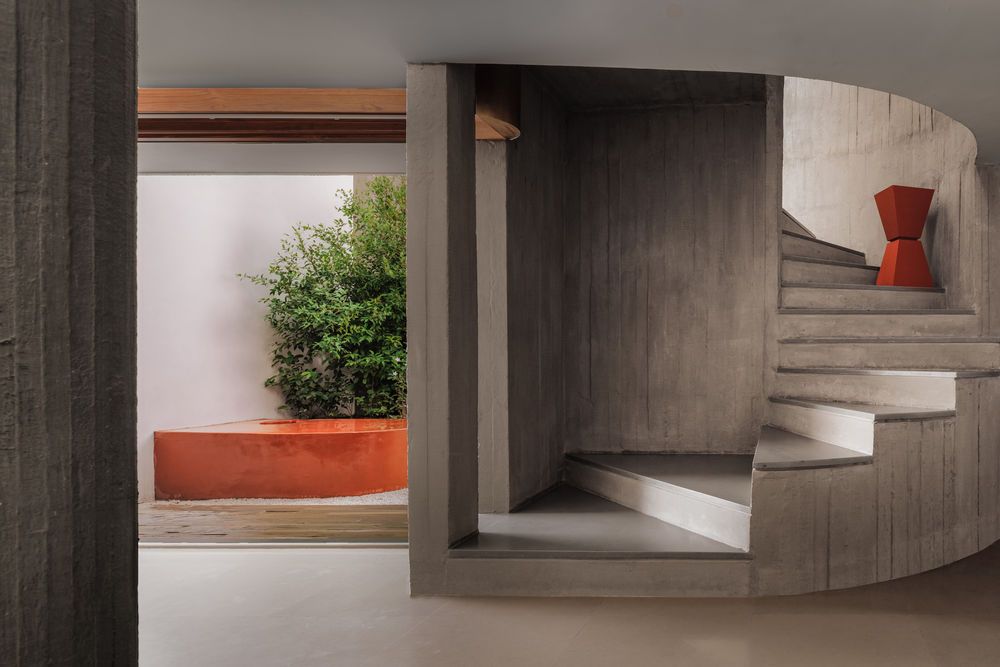
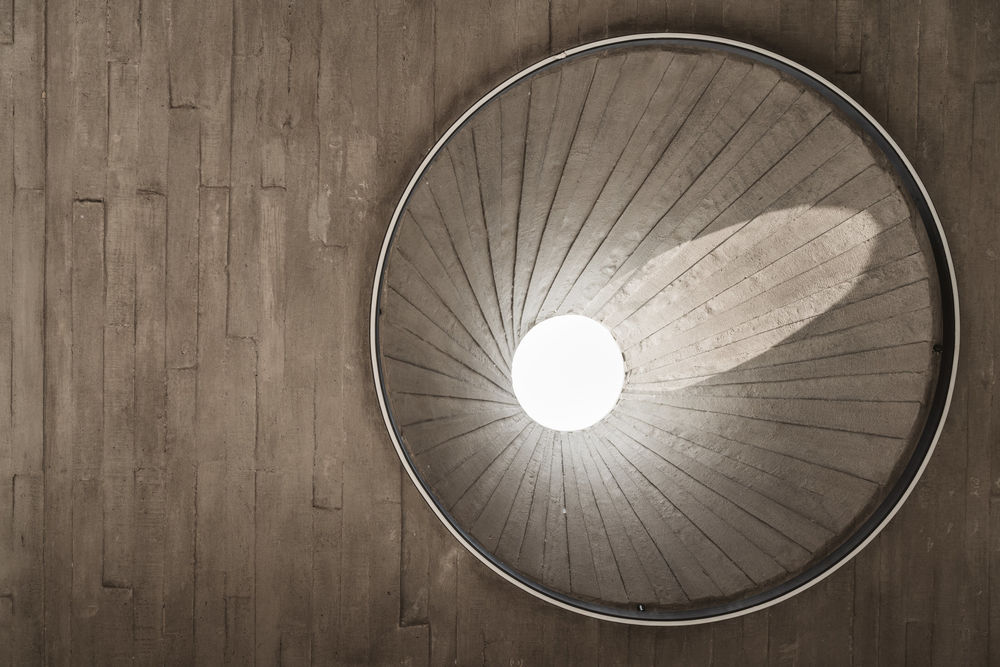
Brutalist skylights pictured from above. Photo by Ishita Sitwala.
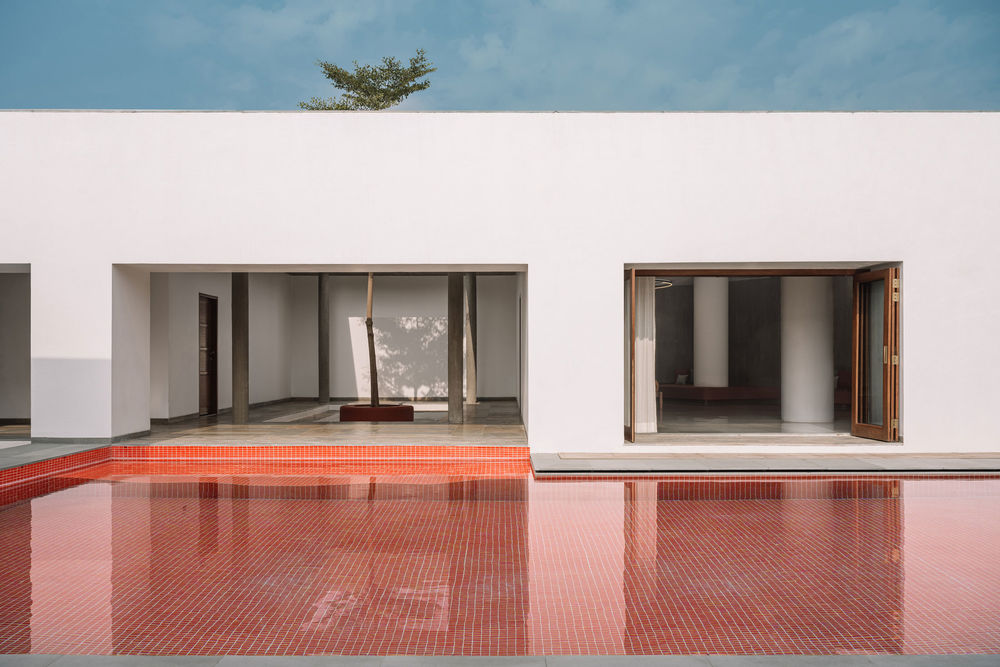
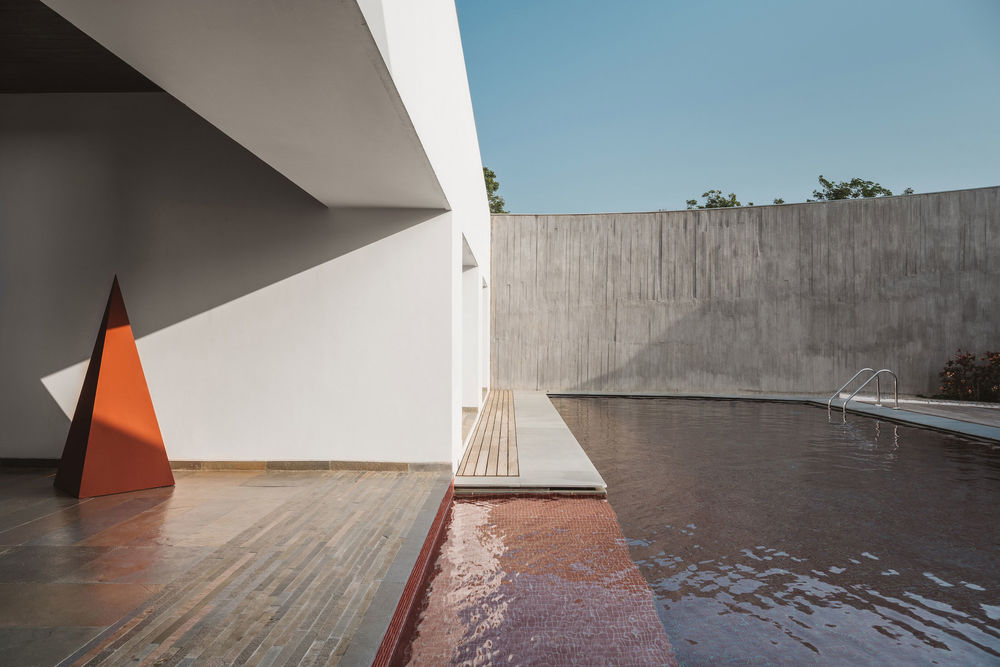
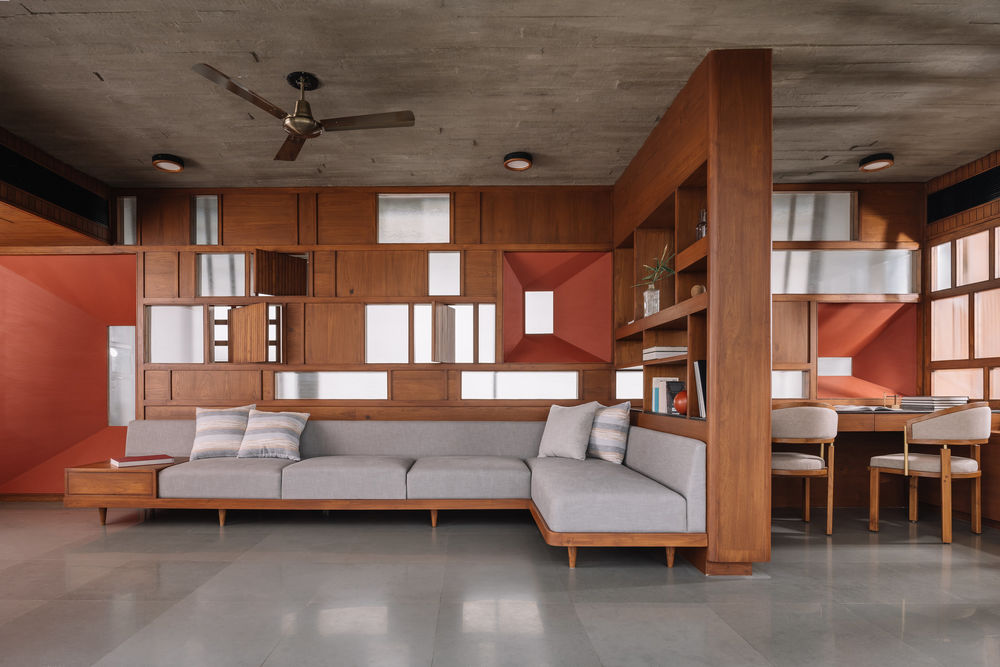

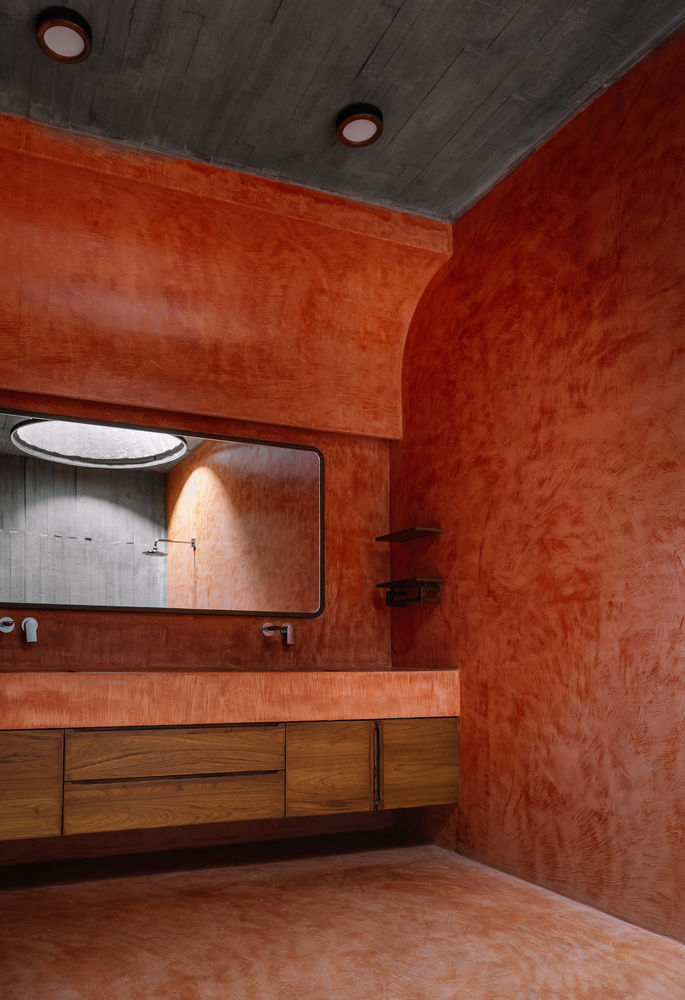
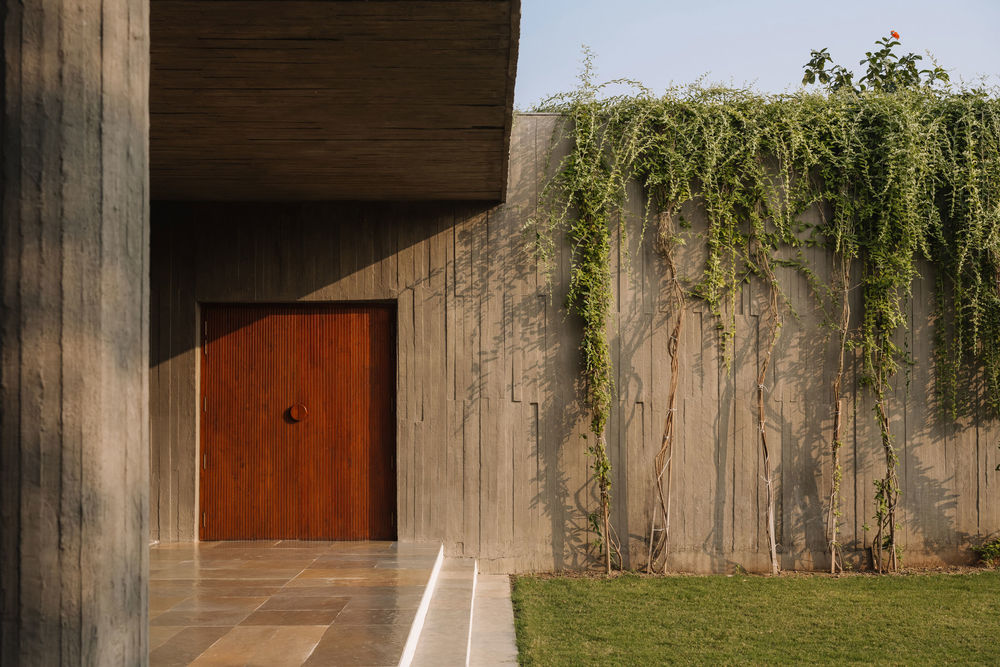
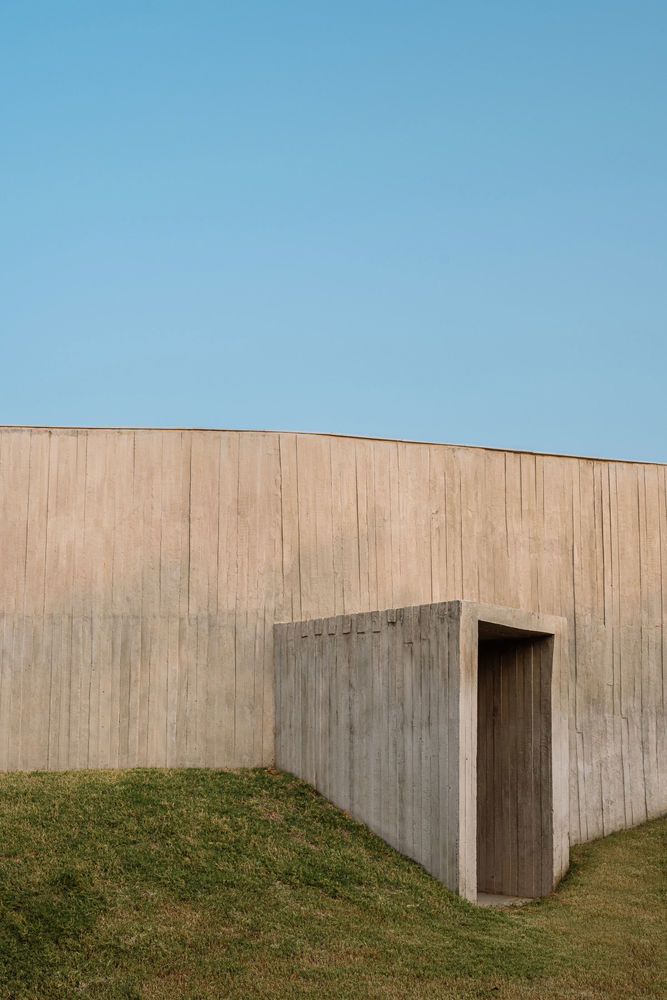
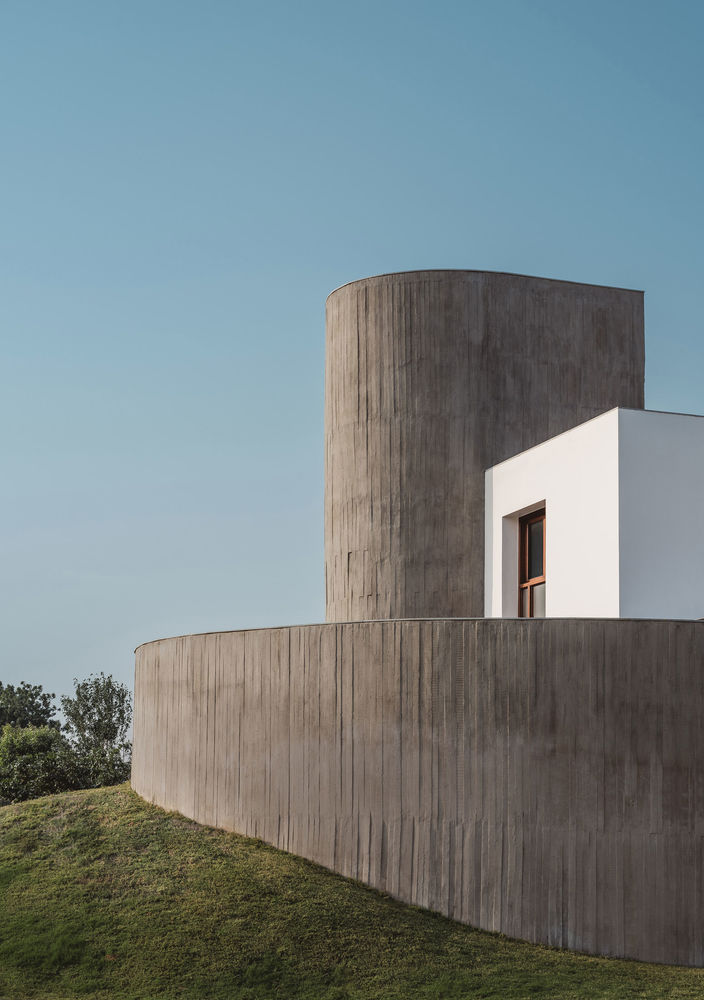
A series of sculptural elements also weave themselves through the home’s various volumes, further enhancing the shifts in scale throughout the residence. Steel-capped spiral stairs employ the same beton brut as the walls, becoming highly textural objects. Concrete columns stretch up double-height spaces. Moulded bench seats sit monolithically in outdoor bathrooms and courtyards.
But perhaps the most sculptural element of Enclosure is the home itself. Sitting atop a hill in rural Himatnagar, it is an all-encompassing dance of scale and connection; a house without elevations, but rather, an inward-looking ‘enclosure’ that embraces experience and aspect.
DCIM100MEDIADJI_0631.JPG
DCIM100MEDIADJI_0642.JPG
[Images courtesy of Design Ni Dukaan. Photography by Ishita Sitwala.]
